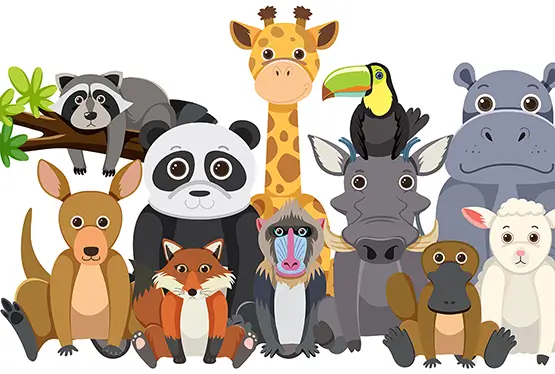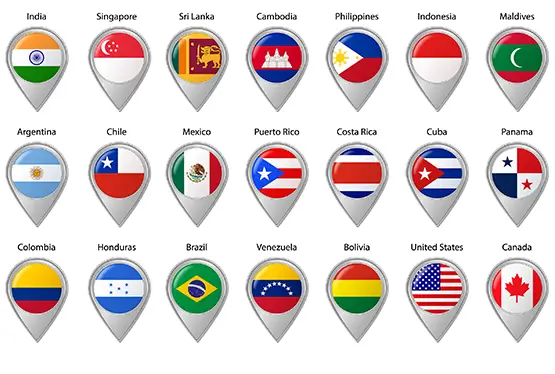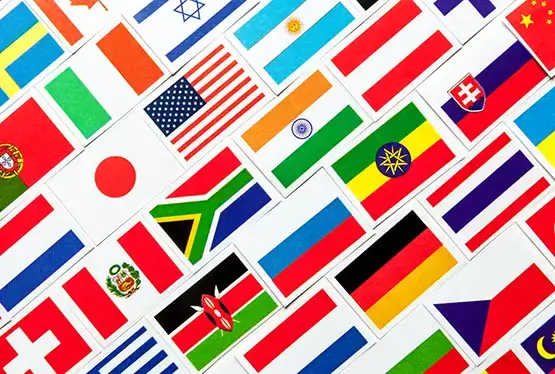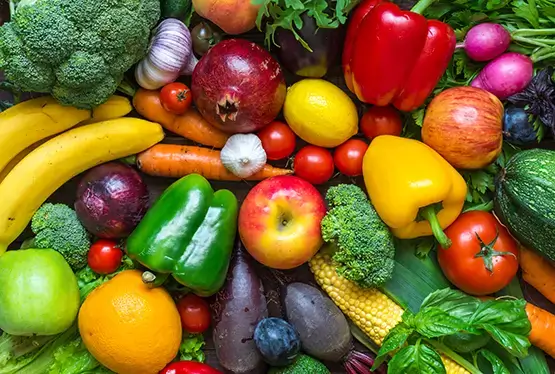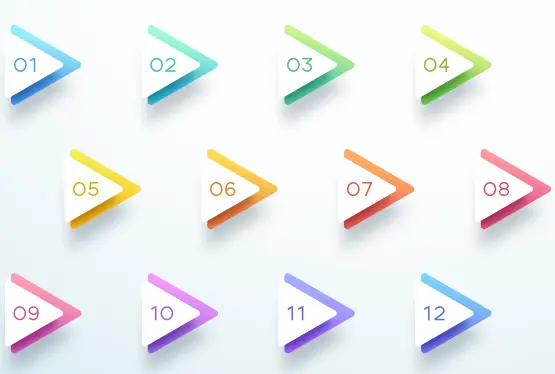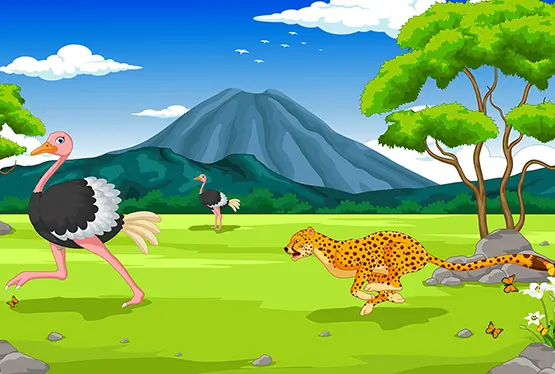| a | the first letter of the English alphabet in lowercase |
| a to b | from one place to another |
| a to z | all the way from the beginning to the end |
| A, a (noun) | 1 the first letter of the English alphabet. 2 in music, the sixth note of the scale of C major. 3 a human blood type (blood type A). 4 the best grade in a school paper (he got an A for Algebra). |
| aardvark | an African mammal. In Afrikaans language, "aardvark" translates to "earth pig". |
| abacus (noun) | a counting frame with beads. |
| abalone (noun) | an edible sea snail with a shell that is shaped like an ear. |
| abandon (verb) | 1 to give up (abandon the attempt). 2 to depart from forever, desert (abandon his wife and children). n freedom from care (dance with abandon). |
| abandoned (adjective) | 1 deserted (an abandoned house). 2 immoral, shameless (abandoned young women). |
| abandonment | Collective noun for orphans (An abandonment of orphans) (see list of collective nouns) |
| abate (verb) | to lessen (storms abating). n abatement |
| abbess (noun) | the chief nun in a convent. |
| abbey (noun) | 1 a monastery or convent. 2 a church, once part of a monastery or convent. |
| abbot (noun) | the chief monk in a monastery. |
| abbreviate (verb) | to shorten (abbreviate a word). n abbreviation |
| abdicate (verb) | to give up high office, especially a throne. n abdication |
| abdomen (noun) | the part of the body between your chest and your thighs. adj abdominal |
| abduct (verb) | to kidnap. n abduction n abductor |
| abhor (verb) | to loathe. n abhorrence |
| abhorrent (adjective) | loathsome. |
| abide (verb) | to put up with (she cannot abide untidiness). abide by to obey, to remain true to (abide by the rules). |
| abiding (adjective) | lasting (an abiding love). |
| ability (noun) | 1 skill or power to do a thing (the ability to do the job). 2 cleverness (pupils of ability). |
| ablaze (adjective and adverb) | on fire, in flames. |
| able (adjective) | 1 having skill or power to do a thing. 2 clever. adv ably. |
| able-bodied (adjective) | someone who is able to walk and is physically healthy. |
| Ablutophobia | fear of washing or bathing (see list of phobias) |
| abnormal (adjective) | different from the usual (abnormal levels of lead). adv abnormally |
| abnormality (noun) | an unusual quality. |
| aboard (adverb and preposition) | on board, on a ship, train, airplane, etc. |
| abode (noun) | (formal or humorous) house, home (our humble abode). |
| abolish (verb) | to put an end to, to do away with (abolish slavery). n abolition , abolitionist |
| abominable (adjective) | hateful (her abominable behavior shocked everyone). |
| abominable sight | Collective noun for monks (An abominable sight of monks) (see list of collective nouns) |
| aboriginal (adjective) | 1 describing a feature that is native to a country. 2 (cap) describing the native peoples of Australia. n (cap) a descendant of the people who inhabited Australia before the arrival of the Europeans. |
| aborigine (noun) | 1 one of the original inhabitants of a country, who has been there since the earliest times. 2 (cap) another name for an Australian Aboriginal. |
| abort (verb) | to stop something, especially in the early stages (they had to abort the space shuttle take-off because of a problem with the fuel). |
| abortive (adjective) | unsuccessful because done too soon (an abortive attempt). |
| abound (verb) | to be plentiful (large houses abound there). |
| about (adverb/preposition) | 1 concerning (a letter about money). 2 around (dash about the house). 3 near to (somewhere about here). 4 nearly (costing about $5). 5 on the point of (just about to go). |
| above (adverb/preposition) | 1 over (pictures above the fireplace/an apartment above the store). 2 higher (than) (above average). |
| aboveboard (adjective) | honest, fair (the deal was honest and aboveboard). |
| abrasion (noun) | 1 the act of rubbing away at something (abrasion causing scratches). 2 an area of skin that has been scraped (her skin was covered in cuts and abrasions after the accident). |
| abrasive (adjective) | 1 causing abrasion (use abrasive to remove the paint). 2 harsh or irritating (abrasive personality). n something that causes abrasion. |
| abreast (adverb) | side by side (competitors running abreast). abreast of the times up-to-date. |
| abridge (verb) | to make shorter (abridge the story). n abridg(e)ment |
| abroad (adverb) | 1 out of your own country (vacations abroad). 2 far and wide (spread the news abroad). |
| abrupt (adjective) | 1 sudden, hasty (an abrupt departure). 2 discourteous (an abrupt reply). adv abruptly n abruptness |
| abscess (noun) | a boil, a gathering of pus in some part of the body. |
| absence | Collective noun for waiters (An absence of waiters) (see list of collective nouns) |
| absent (adjective) | not present (absent from school) |
| absentee (noun) | someone who is not present. |
| absent-minded (adjective) | not thinking of what you are doing (her father was very absent-minded). |
| absolute (adjective) | 1 complete (absolute perfection). 2 free from controls or conditions (absolute power). adv absolutely |
| absolve (verb) | to set free, as from guilt or punishment (absolve from blame). n absolution |
| absorb (verb) | 1 to soak up (a material that absorbs liquid). 2 to take up all the attention of. |
| absorbed (adjective) | giving the whole mind to (people absorbed in their work). |
| absorbent (adjective) | drinking in. |
| absorption (noun) | 1 act of absorbing. 2 full attention. |
| abstain (verb) | 1 to keep yourself from, to hold back from (abstain from smoking). 2 not to vote (three voted against and two abstained). n abstainer n abstention |
| abstract (noun) | a summary (an abstract of the lecture). adj 1 existing in the mind only. 2 portraying ideas rather than realistic images (an abstract painting). |
| absurd (adjective) | foolish. n absurdity |
| abundance (noun) | more than enough, plenty (an abundance of apples this year). adj abundant adv abundantly |
| abuse (verb) | 1 to make wrong use of (abuse power). 2 to ill-treat, to maltreat, especially physically or sexually (abuse their children). 3 to use insulting language (a drunk abusing the barman). n n abuser |
| abusive (adjective) | 1 ill-treating, cruel (abusive treatment). 2 insulting (abusive language). adv abusively |
| abysmal (adjective) | very bad (an abysmal performance). |
| abyss (noun) | a very deep pit or ravine. |
| academic (adjective) | 1 of or concerning education, especially in a college or university (an academic career). 2 not practical or useful; theoretical (of academic interest). n teacher in a college or university. |
| academy (noun) | 1 a high school 2 a school for special studies (a military academy). 3 a society for advancing arts and sciences (the Royal Academy). |
| Acanthochronology | study of cactus spines grown in time ordered sequence (see list of branches of science) |
| Acarology | study of mites and ticks (see list of branches of science) |
| Acarophobia | fear of itching or of the insects that cause itching (see list of phobias) |
| accelerate (verb) | to increase speed. n acceleration |
| accelerator (noun) | a device that controls the speed of an automobile. |
| accent (noun) | 1 a special emphasis given to part of a word (the accent is on the first syllable). 2 the mark that indicates such emphasis. 3 a way of speaking peculiar to certain persons or groups (a New York accent). vb to emphasize a certain part of a word. |
| accentuate (verb) | to emphasize (a dress accentuating the blue of her eyes). |
| accept (verb) | 1 to receive something offered (accept the gift with thanks accept their criticism). n acceptance |
| acceptable (adjective) | 1 pleasant to receive (a very acceptable gift). 2 satisfactory, good enough (acceptable work). 3 allowable, tolerable (acceptable levels of radiation). |
| access (noun) | a way or means of approach. vb to find on a computer file (access secret data illegally). |
| accessible (adjective) | 1 easily approached (an accessible manager). 2 easily reached (villages that are scarcely accessible). 3 easily obtained or understood (accessible information). n accessibility. |
| accessory (noun) | 1 an assistant, especially in crime. 2 an additional part or tool (car accessories). 3 an additional item worn with clothing (accessories such as purses). |
| accident (noun) | 1 an unexpected happening (we met by accident). 2 an unexpected event that causes damage or injury (a road accident). adj accidental. |
| acclaim (verb) | to greet with applause. Also n. |
| acclamation (noun) | a shout of joy or approval. |
| acclimatize (verb), also acclimatise (British spelling) | to accustom to a new climate or situation. n acclimatization , also acclimatisation (British spelling) |
| accolade (noun) | 1 the touching on the shoulder with a sword in the ceremony of making someone a knight. 2 praise or approval (receive accolades for his bravery). |
| accommodate (verb) | 1 to provide lodgings for (accommodate the travelers in the hotel). 2 to have space for (a garage accommodating three cars). 3 to supply with (accommodate them with a loan). 4 to make suitable, to adapt (accommodate his way of life to his salary). |
| accommodating (adjective) | obliging (an accommodating friend). |
| accommodation (noun) | 1 lodgings (cheap accommodation for student travelers). 2 adaptation. |
| accompaniment | Collective noun for condiments (An accompaniment of condiments) (see list of collective nouns) |
| accompaniment (noun) | the music played with a singer or player (musical accompaniment for the voice). |
| accompanist (noun) | someone who plays the accompaniment for a singer or player (the accompanist played piano). |
| accompany (verb) | 1 to go with (accompany her to the concert). 2 to join a singer or player by playing a musical instrument. |
| accomplice (noun) | a helper, especially in crime (the burglar’s accomplice). |
| accomplish (verb) | to perform successfully, to finish (accomplish the task). |
| accomplished (adjective) | 1 finished (the accomplished task). 2 skilled (an accomplished pianist). |
| accomplishment (noun) | 1 something done successfully. 2 completion. |
| accord (verb) | 1 to agree (his account of the accident accords with hers). 2 to give (accord them a warm welcome). n agreement. of your own accord by your own wish. |
| accordance (noun) | agreement. |
| according to (preposition) | 1 in keeping with (act according to the rules). 2 as stated by (according to the teacher). |
| accordingly (adverb) | therefore. |
| accordion (noun) | a portable musical instrument played by keys and worked by bellows. n accordionist |
| accost (verb) | to speak to first, to address. |
| account (verb) | (formal) to consider, to reckon (account him an honest man). n 1 a statement of money received and paid, a bill. 2 a report, description (an account of the accident). account for give an explanation of (account for his absence). of no account of no importance. on account of because of. |
| accountable (adjective) | responsible (not accountable for his brother’s crime). |
| accountancy (noun) | the work of an accountant (he studied accountancy). |
| accountant (noun) | someone who keeps or examines money accounts. |
| accumulate (verb) | 1 to increase, to heap up (garbage accumulated). 2 to collect (accumulate wealth). |
| accumulation (noun) | growth, a large collection. |
| accuracy (noun) | exactness, precision (to aim with accuracy). |
| accurate (adjective) | 1 correct, exact (an accurate answer). 2 correct, careful (an accurate worker). adv accurately. |
| accursed (adjective) | 1 under a curse, doomed (he seemed to be an accursed man). 2 hateful. |
| accusation (noun) | a charge brought against anyone (accusation of theft). |
| accuse (verb) | to charge with wrongdoing (accuse them of stealing cars). n accuser |
| accused (noun) | someone charged with wrongdoing (the accused was found guilty). |
| accustom (verb) | to make well known by use (accustom yourself to a different climate). |
| accustomed (adjective) | 1 usual (his accustomed evening walk). 2 used (to), familiar with (not accustomed to being treated rudely). |
| ace (noun) | 1 the value “one” at cards, dice, or dominoes (the ace of hearts). 2 someone good at sports (an ace on the running track). within an ace of on the very point of. |
| Aceology | study of remedies, or of therapeutics (see list of branches of science) |
| Acerophobia | fear of sourness (see list of phobias) |
| acetic (adjective) | sour, of vinegar. |
| acetylene (noun) | a gas used for giving light and heat, and commonly used with oxygen for welding or cutting metal. |
| ache (verb) | to be in or to give prolonged pain. n a prolonged or throbbing pain. |
| achieve (verb) | 1 to succeed in doing (achieve what we set out to do). 2 to gain (achieve success). |
| achievement (noun) | 1 something done successfully (the achievement of his aims). 2 a feat (a remarkable achievement). |
| Achluophobia | fear of darkness (see list of phobias) |
| acid (noun) | a sour or corrosive substance (a solution of dilute sulfuric acid). adj sour; sharp to the taste; bitter (an acid personality). |
| acid rain (noun) | rain that has been polluted by acid from factory waste, car exhausts, etc and which is harmful to the environment. |
| acid test (noun) | a test that indicates the worth or value of something (the acid test of his invention will be if it works). |
| acidity (noun) | sourness. |
| acknowledge (verb) | 1 to admit as true (acknowledge that he was wrong ak-naw-ledge-ment/. |
| acne | Collective noun for adolescents (An acne of adolescents) (see list of collective nouns) |
| acne (noun) | a skin condition that causes pimples. |
| Acology | study of medical remedies (see list of branches of science) |
| acorn (noun) | the fruit or seed of the oak tree. |
| acoustic (adjective) | 1 having to do with hearing and sound (the acoustic problems of the old hall). 2 (of a musical instrument) making its natural sound, not electric (an acoustic guitar). |
| Acousticophobia | fear of noise (see list of phobias) |
| Acoustics | study of sound (see list of branches of science) |
| acoustics (noun, plural) | the science of sound. |
| acquaint (verb) | 1 to make familiar with (acquaint yourself with the new system). 2 to inform (acquaint them with the facts). |
| acquaintance (noun) | 1 a person you know (friends and acquaintances). 2 knowledge (a slight acquaintance with the plays of Tennessee Williams). |
| acquire (verb) | to gain, to obtain. |
| acquit (verb) | 1 to declare innocent. 2 to conduct yourself (acquit yourself well). |
| acquittal (noun) | a setting free. |
| acre (noun) | in the imperial system, a measure of land (= 4840 square yards or 4046.9 square meters). |
| acrobat (noun) | a high-wire or trapeze artiste. adj acrobatic. npl acrobatics the skills of an acrobat. |
| acronym (noun) | an abbreviation, made from the initial letters, or from combinations of letters from a word, which itself can be pronounced as a word (NATO is an acronym of North Atlantic Treaty Organization). |
| Acrophobia | fear of heights (see list of phobias) |
| act (verb) | 1 to do (act quickly). 2 to conduct yourself (act wisely). 3 to perform on the stage, in movies, or on television. 4 to produce an effect (drugs acting quickly). n 1 a deed (a kind act). 2 a law. 3 a part of a play. |
| Actinobiology | study of the scientific principles, mechanisms, and effects of the interaction of ionizing radiation with living matter (see list of branches of science) |
| action (noun) | 1 something done (take swift action). 2 a movement (good wrist action). 3 the producing of an effect. 4 the events in a narrative or drama. 5 a battle. |
| active (adjective) | 1 energetic (active children). 2 taking part, involved (an active member of the club). 3 being in action, working, operative (an active volcano). |
| activity (noun) | 1 energy. 2 occupation or pastime (spare-time activities). |
| actor (noun) | a man who performs in a play, or movie or on television. |
| actress (noun) | a woman who performs in a play or movie or on television. |
| actual (adjective) | 1 real, not imaginary (actual children, not characters in a television play). 2 true (the actual cost of the repairs). |
| actuality (noun) | reality. |
| actually (adverb) | really, as a matter of fact. |
| acupuncture (noun) | a treatment used in alternative medicine in which fine needles are inserted into the skin at certain points along energy paths known as meridians. |
| acute (adjective) | 1 coming to a sharp point. 2 sharp-witted. 3 (of emotions or diseases) intense but short-lasting. adv acutely. |
| acute angle (noun) | an angle less than 90º. |
| AD | abbreviation for Anno Domini, a Latin phrase meaning “in the year of our Lord”, which is used to describe the years following the birth of Jesus. |
| ad (noun) | short for advertisement. |
| adage (noun) | a proverb, an old wise saying. |
| adamant (adjective) | determined, firm (adamant that they were right). |
| adapt (verb) | 1 to make suitable, to fit to a different use (adapt the evening dress for day wear). 2 to change, adjust (adapt to new surroundings). |
| adaptable (adjective) | easily fitted to new uses or conditions. n adaptability |
| adaptation (noun) | the action or result of adapting. |
| adapter (noun) | a device for connecting electrical plugs with a socket. |
| add (verb) | 1 to join one thing to another. 2 to increase (add to their misery). 3 to say further (add a word of thanks). |
| adder (noun) | a small poisonous snake, a viper. |
| addict (noun) | a person who is dependent on and so unable to give up a habit, especially a harmful one such as drug-taking (a drug addict). |
| addicted (adjective) | dependent on, unable to give up (addicted to alcohol a-dic-shen/. |
| addition (noun) | 1 act of adding. 2 something added (an addition to the family). adj additional |
| additive (noun) | a substance added to another, especially to add flavor or color (food additives). |
| address (verb) | 1 to speak to (address the crowds). 2 to direct a letter. 3 to direct your attention or energy to (address the task). n 1 the place where a person lives or works. 2 the directions on a letter or envelope. 3 a formal talk (the head teacher’s address on speech day). |
| adenoids (noun, plural) | glands at the back of the nose that can hinder breathing if swollen. |
| Adenology | study of glands (see list of branches of science) |
| adept (adjective) | very skillful (adept at tennis). n someone who is skilled. |
| adequate (adjective) | 1 enough (adequate supplies). 2 satisfactory (adequate for the job). adv adequately. n adequacy. |
| adhere (verb) | 1 to stick (to). 2 to remain loyal to (adhere to your principles). n adherence |
| adhesive (adjective) | sticky. n a sticky substance, glue. |
| adieu (interjection) | the French word for farewell, goodbye. n (pl adieus or adieux ) a farewell. |
| adios (interjection) | the Spanish word for goodbye. |
| adjacent (adjective) | lying near (to) (the fire spread to adjacent buildings). |
| adjective (noun) | a word that describes a noun. adj adjectival adv adjectivally. |
| adjourn (verb) | 1 to put off to another time (adjourn the meeting). 2 to go to another place (adjourn to the next room). n adjournment |
| adjust (verb) | 1 to set right. 2 to put in order. adj adjustable n adjuster , adjustment |
| administer (verb) | 1 to manage, to govern (administer the firm’s finances). 2 to carry out (administer the law). 3 (fml) to give (administer medicine). |
| administration (noun) | 1 the management of a business or a government. 2 people involved in this. adj administrative |
| administrator (noun) | a person who works in administration (hospital administrators). |
| admirable (adjective) | deserving admiration or praise (admirable work). adv admirably |
| admiral (noun) | the highest rank of naval officer. |
| admiration (noun) | a feeling of pleased respect (look at the painting with admiration). |
| admire (verb) | to think very highly of (admire her work). n admirer |
| admission (noun) | 1 permission to enter (women being refused admission). 2 the amount payable for entry (admission $4). 3 a confession (an admission of guilt). |
| admit (verb) | 1 to allow to enter (the ticket admits two people). 2 to accept as true or just (admit that they are right). 3 to confess (admit his crime). |
| admittance (noun) | (formal) right or permission to enter (fail to gain admittance). |
| admittedly (adverb) | it cannot be denied. |
| admonish (verb) | to give a warning or scolding to. n admonition adj admonitory |
| ado (noun) | fuss, trouble (let us get on our way without further ado). |
| adobe (noun) | 1 a building material made of sun-dried earth and straw. 2 a building made of this material. |
| adolescent (adjective) | growing up from youth to adulthood. n a person of either sex when adolescent. n adolescence |
| adopt (verb) | 1 to take as your own (adopt a child). 2 to take over and use (adopt foreign customs). 3 to choose formally (adopt a candidate). n adoption |
| adorable (adjective) | lovable. |
| adore (verb) | 1 to worship (adore God). 2 to love or like very much (adore their mother a-do-ray-shun/. |
| adorn (verb) | to decorate, to make beautiful (adorn the tree with Christmas lights). adj adorned. |
| adornment (noun) | an ornament. |
| adrenalin (noun) | a chemical produced by your body when you are scared or excited. |
| adrenaline (noun) | a chemical produced by your body when you are scared or excited. |
| adrift (adjective/adverb) | floating without control. |
| adulation (noun) | extreme praise, flattery. |
| adult (adjective) | grown-up (an adult animal). n a grown-up person. |
| adulterate (verb) | to lower in value by mixing with something of less worth (e.g. to mix wine with water, gold with tin, etc). n adulteration |
| advance | Collective noun for authors (An advance of authors) (see list of collective nouns) |
| advance (verb) | 1 to put forward (advance a theory). 2 to go forward (armies advancing). 3 to help promote (advance the cause of freedom). 4 to lend (the bank advanced him $5000). n 1 a forward movement (the advance of the army). 2 progress (little advance in the discussions). 3 a loan (of money), especially a payment made before the normal time (an advance on his paycheck). 4 increase (any advance on $500 for this picture?). in advance in front; before. |
| advanced (adjective) | 1 far on (in life, time, etc) (of advanced years/an illness at an advanced stage). 2 at a high level, not elementary (advanced studies). 3 modern and new and sometimes not yet generally accepted (advanced ideas). |
| advantage (noun) | 1 a better position or something that puts someone in a better position (he has the advantage of being older). 2 gain, profit, benefit (little advantage in having a car if you can’t afford to run it). |
| advantageous (adjective) | profitable; helpful. adv advantageously |
| advent (noun) | a coming, an arrival (the advent of train travel). |
| Advent (noun) | in the Christian Church, the period from the fourth Sunday before Christmas to Christmas Day. |
| adventure (noun) | an exciting or dangerous deed or undertaking. |
| adventurer (noun) | 1 someone who seeks adventures. 2 someone who lives by his or her wits. |
| adventurous (adjective) | 1 daring, eager for adventure (adventurous children). 2 dangerous, involving risk (an adventurous journey). |
| adverb (noun) | a word that modifies the meaning of a verb, an adjective, or another adverb. adj adverbial |
| adversary (noun) | an enemy. |
| adverse (adjective) | acting against, unfavorable (adverse weather conditions ad-verse-lee/. |
| adversity (noun) | misfortune. |
| advertise (verb) | to make known to the public. n advertiser |
| advertisement (noun) | an announcement to the public, often for the purpose of selling something. |
| advice (noun) | 1 a helpful opinion offered to another (seek expert financial advice). 2 a formal letter, etc, giving information (a sales advice). |
| advisable (adjective) | wise; correct in the circumstances. n advisability |
| advise (verb) | 1 to give advice (advise them to leave). 2 to inform (advise us of the cost). |
| adviser (noun) | someone who gives advice. |
| advisory (adjective) | for the purpose of giving advice. |
| advocate (noun) | 1 someone who speaks for another. 2 a lawyer who pleads a cause in court. vb to recommend, to speak in favor of (advocate a change of climate for his health). |
| Aedoeology | study of generative organs (see list of branches of science) |
| aerial (adjective) | of or from the air (aerial photography). n (British spelling) a radio or television antenna. |
| aerie (noun), also eyrie (British spelling) | 1 the nest of an eagle or other bird of prey. 2 any high isolated place. |
| Aeroacrophobia | fear of open high places (see list of phobias) |
| aerobatics (noun, plural) | difficult exercises performed in the air by an aircraft. |
| aerobics (noun) | a type of physical exercise that strengthens the heart and lungs by temporarily increasing the heart rate (she says she became very fit after doing aerobics for almost a year). adj aerobic |
| Aerobiology | study of airborne organisms (see list of branches of science) |
| Aerodonetics | study of gliding (see list of branches of science) |
| aerodynamic (adjective) | streamlined for smooth movement through the air. |
| Aerodynamics | study of movement in a flow of air or gas (see list of branches of science) |
| Aerolithology | study of aerolites; meteorites (see list of branches of science) |
| Aerology | study of the atmosphere (see list of branches of science) |
| Aeronausiphobia | fear of vomiting secondary to airsickness (see list of phobias) |
| Aeronautics | study of navigation through air or space (see list of branches of science) |
| aeronautics (noun) | the science of the operation and flight of aircraft. |
| Aeropalynology | study of pollens and spores in atmosphere (see list of branches of science) |
| Aerophobia | fear of aircraft or flying (see list of phobias) |
| aerosol (noun) | 1 a liquid under pressure in a container, which is released in a fine spray (deodorants in the form of aerosols). 2 the container for this (aerosols of perfume). |
| Aerostatics | study of air pressure; art of ballooning (see list of branches of science) |
| affable (adjective) | pleasant, polite, easy to talk with (she has a very affable manager at her work). n affability adv affably. |
| affair (noun) | 1 business (affairs of state). 2 a matter, a concern (no affair of yours). 3 happenings or events connected with a particular person or thing (the Watergate affair). 4 a romantic or sexual relationship. |
| affect (verb) | 1 to act upon (a disease affecting his eyes). 2 to move the feelings (deeply affected by his death). 3 to pretend (affect grief). |
| affectation (noun) | manner or behavior that is not natural; pretense (her helplessness is just an affectation). |
| affected (adjective) | full of affectation (an affected young woman). |
| affection (noun) | fondness, love. |
| affectionate (adjective) | loving. adv affectionately |
| affiliate (verb) | to joined or be connected with something (affiliate yourself with that club). n affiliation |
| affinity (noun) | 1 relationship (languages having an affinity with each other). 2 attraction (an affinity between them). |
| affirm (verb) | to state with certainty. |
| affirmation (noun) | 1 a statement. 2 a solemn statement of the truth. |
| affirmative (adjective) | answering “yes”. n an answer meaning “yes”. answer in the affirmative to say “yes”. |
| afflict (verb) | to cause pain, distress, etc, to (she is afflicted with poor health a-flic-shun/. |
| affluence (noun) | wealth. |
| affluent (adjective) | wealthy. |
| afford (verb) | 1 to be able to pay for (they were unable to afford a vacation). 2 to be able to do, spend, etc, something without trouble, loss, etc (unable to afford the time). 3 (fml) to give (the occasion afforded him much pleasure). |
| afloat (adjective/adverb) | floating. |
| aforesaid (adjective) | already mentioned. |
| afraid (adjective) | frightened. |
| afresh (adverb) | again (begin afresh). |
| African American (noun) | a United States citizen who has African ancestors. adj describing African Americans, or their culture, history, etc. |
| aft (adjective and adverb) | at or near the stern of a ship. |
| after (adverb) | and prep 1 later in time (than) (after the meal). 2 behind (come after them). |
| aftermath (noun) | the period of time, or consequences, following an unpleasant or unfortunate event (the aftermath of the war). |
| afternoon (noun) | the time from noon to evening. |
| afterthought (noun) | 1 a fresh thought after an act or speech. 2 something added or done later, not part of an original plan (a garage added as an afterthought). |
| afterward (adverb) | later. |
| again (adverb) | once more. |
| against (preposition) | 1 in opposition to (people against the new law). 2 supported by (lean against the wall). |
| agate (noun) | a very hard precious stone. |
| Agateophobia | fear of insanity (see list of phobias) |
| age (noun) | 1 the length of time a person or thing has lived or existed. 2 (inf) a long time (wait ages for a bus). 3 the state of being old (improve with age). 4 a particular period in history (the Stone Age). vb 1 to become old. 2 to make old (worry has aged her). |
| aged (adjective) | 1 at the age of (boys aged ten). 2 old (my aged grandfather). |
| ageless (adjective) | never becoming old. |
| agency (noun) | the office or business of an agent. |
| agenda | Collective noun for tasks (An agenda of tasks) (see list of collective nouns) |
| agenda (noun) | a list of matters to be discussed at a meeting. |
| agent (noun) | 1 someone or something that acts (cleaning agents that harm the skin). 2 a person who acts on behalf of someone else. |
| aggravate (verb) | 1 to make worse (aggravate the situation by losing his temper). 2 (inf) to make angry (children aggravating their mother). adj aggravating. n aggravation. |
| aggression (noun) | 1 an attack. 2 hostile feelings. |
| aggressive (adjective) | 1 always ready to attack, quarrelsome. 2 forceful, determined (an aggressive sales campaign). adv aggressively |
| aggressor (noun) | the first to attack. |
| agile (adjective) | quick of movement, nimble. n agility |
| agitate (verb) | 1 to excite, to make anxious (delay agitates her). 2 to try to stir up public feeling (agitate for prison reform). 3 (fml) to shake (agitate the bottle). n agitation |
| agitator (noun) | someone who tries to cause public discontent or revolt. |
| Agliophobia | fear of pain (see list of phobias) |
| Agnoiology | study of ignorance (see list of branches of science) |
| agnostic (noun) | someone who believes that the existence of God cannot be proved. |
| ago (adverb) | in the past (a long time ago). |
| agony (noun) | 1 great pain (in agony from a gunshot wound). 2 great distress (the agony of divorce). |
| Agoraphobia | fear of open spaces (see list of phobias) |
| Agraphobia | fear of sexual abuse (see list of phobias) |
| agree (verb) | 1 to be of the same opinion (agree that everyone should go). 2 to be alike (statements that agree). 3 to suit (a climate that agrees with her). |
| agreeable (adjective) | 1 pleasant (an agreeable climate). 2 ready to agree (we were not all agreeable to vote that way). adv agreeably |
| agreement (noun) | 1 sameness of opinion (in agreement about the new plans). 2 likeness (little agreement in their statements). 3 a contract (sign an agreement). |
| agriculture (noun) | the science of cultivating the land, farming. adj agricultural |
| Agriology | study of primitive peoples (see list of branches of science) |
| Agrizoophobia | fear of wild animals (see list of phobias) |
| Agrobiology | study of plant nutrition; soil yields (see list of branches of science) |
| Agroecology | study of ecological processes applied to agricultural production systems (see list of branches of science) |
| Agrogeology | study of agrominerals (see list of branches of science) |
| Agrology | study of agricultural soils (see list of branches of science) |
| Agronomics | study of productivity of land (see list of branches of science) |
| Agrostology | study of grasses (see list of branches of science) |
| aground (adjective/adverb) | on or onto the sea bed. |
| Agyrophobia | fear of streets or crossing the street (see list of phobias) |
| ahead (adverb) | 1 in front (go on ahead to clear the way). 2 forward, for the future (plan ahead). |
| AI | abbreviation for artificial intelligence, the study of the capacity of computers to simulate human intelligence. |
| Aichmophobia | fear of needles or pointed objects (see list of phobias) |
| aid (verb) | to help. n help. |
| aide (noun), | short for aide-de-camp (pl aides-de-camp) an officer in attendance on a king, general or other high official (a White House aide). |
| AIDS, Aids (noun) | a condition caused by a virus (HIV)that affects the body’s immune system, greatly reducing resistance to infection (AIDS is an acronym of Acquired Immune Deficiency Syndrome). |
| ailing (adjective) | 1 unwell (his ailing wife). 2 weak (the country’s ailing economy). |
| ailment (noun) | a minor health problem. |
| Ailurophobia | fear of cats (see list of phobias) |
| aim (verb) | 1 to point a weapon (at). 2 to intend, to try (aim to win). n 1 the act of aiming a weapon. 2 intention, goal, purpose (our aim is to win). |
| aimless (adjective) | without purpose (aimless discussions). |
| air (noun) | 1 the mixture of gases composing the earth’s atmosphere (the air we breathe). 2 a light breeze (the sea air). 3 a tune (play a familiar air). 4 manner (an air of confidence). 5 pl a manner that is not genuine (put on airs). vb 1 to expose to fresh air (air the room by opening the windows). 2 to expose to warm air, to dry (air the laundry). 3 to speak openly about (air your views). |
| air bag (noun) | an inflatable safety device in automobiles that inflates on impact to cushion the driver. |
| air pocket (noun) | a stream of air that carries an aircraft suddenly up or down. |
| air raid (noun) | an attack by aircraft. |
| air-conditioning (noun) | a system for controlling the temperature and quality of the air in a building. adj air-conditioned n air-conditioner |
| aircraft (noun) | a flying machine. |
| airfield (noun) | a starting and landing place for aircraft. |
| airily (adverb) | in an airy manner. |
| airing (noun) | 1 act of exposing to fresh or warm air. 2 an outing in the open air. |
| airless (adjective) | stuffy. |
| airline (noun) | a company providing regular aircraft services. |
| airliner (noun) | a large passenger aircraft. |
| airmail (noun) | a postal service where mail is carried by airplane. |
| airplane (noun), also aeroplane (British spelling) | a heavier-than-air flying machine with wings. |
| airport (noun) | a station for passenger aircraft. |
| airship (noun) | an aircraft kept aloft by a gas-filled balloon and driven by a motor. |
| airtight (adjective) | so sealed that air can pass neither in nor out (preserve fruit in an airtight bottle). |
| airy (adjective) | 1 with plenty of fresh air (an airy room). 2 lacking seriousness (an airy disregard for authority). |
| aisle (noun) | 1 the side part of a church, often separated from the central part by a row of pillars. 2 a passage in a church. 3 a passage in a theater or store. |
| ajar (adverb) | partly open (doors left ajar). |
| akimbo (adverb) | with the hand on the hip and the elbow outward (arms akimbo). |
| akin (adjective) | similar (problems akin to ours). |
| Akousticophobia | fear of sound (see list of phobias) |
| alabaster (noun) | a soft marble-like stone. |
| alarm (noun) | 1 a warning of danger (hear a burglar alarm). 2 sudden fear (news causing alarm). vb to frighten. |
| alarm clock n | a clock that can be set to ring or buzz to wake you. |
| alarming (adjective) | frightening. adv alarmingly. |
| alarmist (noun) | someone who needlessly spreads frightening news or rumors. adj causing needless fear. |
| alas (interjection) | a cry of grief or pity. |
| albatross (noun) | a large white seabird. |
| albino (noun) | a person or animal with white skin and hair and pink eyes because they have no natural coloring. |
| album | Collective noun for photographs (An album of photographs) (see list of collective nouns) |
| album | Collective noun for stamps (An album of stamps) (see list of collective nouns) |
| album (noun) | 1 a blank book into which may be put autographs, photographs, stamps, etc. 2 a collection of songs on a CD or other recording (the band’s latest album). |
| Albuminurophobia | fear of kidney disease (see list of phobias) |
| alcohol (noun) | 1 pure spirit. 2 strong liquor containing such spirit (addicted to alcohol). |
| alcoholic (noun) | someone who is addicted to alcohol. adj having to do with alcohol (alcoholic drinks). |
| alcove (noun) | a recess, a section of a room, etc, that is set back from the main part. |
| ale (noun) | a light-colored, bitter beer. |
| Alektorophobia | fear of chickens or ducks (see list of phobias) |
| alert (adjective) | 1 attentive (sentries must be alert on duty). 2 quick (mentally alert). n a warning of danger. n alertness. |
| Alethiology | study of truth (see list of branches of science) |
| alfalfa (noun) | a green plant used as cattle food. |
| algebra (noun) | a method of calculation in which letters and symbols are used to represent numbers. adj algebraic |
| Algedonics | study of pleasure and pain (see list of branches of science) |
| Algology | study of algae (see list of branches of science) |
| Algology | study of pain (see list of branches of science) |
| Algophobia | fear of pain (see list of phobias) |
| alias (adverb) | otherwise (Fred Jones, alias Martin Smith). n a false name (the alias adopted by the spy). |
| alibi (noun) | the plea that you were elsewhere when a crime was committed (establish an alibi). |
| alien (adjective) | 1 foreign (find ourselves in an alien land). 2 different, strange (attitudes that are alien to ours). n 1 a foreigner, a person who is not a naturalized citizen of the country where he or she is living. 2 a being from another world. |
| alienate (verb) | to make unfriendly (alienate his family with his violence). |
| alight1 (verb) | 1 to get down (from) (alight from the bus). 2 to settle upon (butterflies alighting on the leaves). |
| alight2 (adjectiv/adverb) | on fire. |
| align (verb) | 1 to put in line, to straighten. 2 to join, ally yourself with (align himself with the enemy). n alignment |
| alike (adjective) | like, similar. adv in the same way. |
| alimentary canal (noun) | the passage through the body by which food is received and digested. |
| alimony (noun) | the money payable regularly by a man or woman to his or her former spouse after legal separation or divorce. |
| alive (adjective) | 1 living (wounded soldiers still alive). 2 lively (eyes alive with excitement). 3 aware of (alive to danger). |
| alkali (noun) | a substance such as potash or soda that neutralizes acids and unites with oil or fat to form soap. |
| all (adjective) | 1 every one of (all the girls). 2 the whole of (all the cake). n 1 everyone (all left). 2 everything (eat it all). adv wholly, entirely. |
| all right (British spelling) | alright. |
| Allah (noun) | the Islamic name for God. |
| allay (verb) | to calm (allay their fears). |
| all-dressed (adjective) | describing an item of food, such as a pizza or a hot dog, that is topped with all available garnishes. |
| allege (verb) | to state without proof. n allegation (can you provide proof of that allegation?). adj alleged (the alleged thief sat in the court room). |
| allegiance (noun) | loyalty. |
| allegory (noun) | a story with a hidden meaning different from the obvious one. adj allegorical |
| allegro (adverb) | (in music) briskly. |
| allergy (noun) | a reaction of the body to some substance (come out in a rash because of an allergy to cats). adj allergic |
| alleviate (verb) | to lessen (alleviating pain). n alleviation |
| alley (noun) | 1 a narrow walk or passage. 2 a lane for bowling. 3 a building containing lanes for bowling. |
| alliance (noun) | a union between families, governments, etc. |
| alligator (noun) | a reptile related to the crocodile that is found in North and South America and China. |
| alliteration (noun) | the repetition of a sound at the beginning of words especially in poetry, for example, “Peter picked a peck of pickled pepper”. |
| Alliumphobia | fear of garlic (see list of phobias) |
| allocate (verb) | to share out, to distribute (allocating tasks to each of the children). n allocation |
| Allodoxaphobia | fear of opinions (see list of phobias) |
| allot (verb) (allotted, allotting) | to give a share, to distribute (allot the money collected to various charities). |
| allotment (noun) | 1 act of allotting. 2 a small piece of land for growing vegetables, etc. |
| allow (verb) | 1 to permit (allow them to go). 2 to provide, to set aside (allow three hours for the journey). |
| allowable (adjective) | permissible. |
| allowance (noun) | a sum of money granted for a special purpose (a dress allowance). make allowance for take into consideration. |
| alloy (noun) | a mixture of metals. |
| allude (verb) | to refer to, to mention (allude to several new developments in his speech). n allusion adj allusive |
| allure (verb) | to attract (allure them to new jobs with promises of high salaries). n attraction, charm (the allure of the stage). n allurement adj alluring |
| ally (verb) | to join with another for a special purpose (e.g. by marriage or by treaty) (ally ourselves with the blue team). adj allied n 1 a helper (one of the President’s closest allies). 2 a nation bound to another by treaty of friendship (a victory for the allies against the enemy). |
| almanac (noun), | also almanack a book containing a calendar and information about anniversaries, tides, stars, and planets, etc. |
| almighty (adjective) | 1 (often cap) all-powerful (Almighty God). 2 (inf) very great, strong, loud, etc (an almighty crash). n The Almighty God. |
| almond (noun) | an oval nut. |
| almost (adverb) | nearly (almost midnight she almost fell). |
| aloe (noun) | a plant with a bitter juice used in medicines, especially for the skin. |
| aloft (adverb) | high up in the air (hold the flag aloft). |
| aloha (interjection) | a Hawaiian word, meaning love, used to say hello or goodbye. |
| alone (adjective/adverb) | 1 without company (live alone/go on vacation alone). 2 taken by itself (money alone is not enough). |
| alongside (adverb/preposition) | by the side of (draw up alongside their car). |
| aloof (adverb) | apart, distant (stand aloof from his friends’ quarreling). adj distant, cool (aloof people who do not make friends). n aloofness. |
| aloud (adverb) | so as can be heard (read aloud). |
| alp (noun) | a high mountain. |
| alphabet (noun) | the set of letters used in writing a language. adj alphabetical (in alphabetical order). |
| alpine (adjective) | having to do with high mountains, especially the Swiss Alps (alpine plants). |
| already (adverb) | 1 before this time, previously (I have already seen the movie). 2 now or before the expected time (are you leaving already?). |
| alright (adjective) | 1 acceptable or satisfactory (the show was alright). 2 safe or well (I am feeling alright now). adv an expression of agreement (alright, I will). |
| altar (noun) | 1 a raised place or table on which sacrifices are offered. 2 a communion table. |
| alter (verb) | to change (alter your lifestyle neighborhoods that have altered). n alteration |
| alternate (adjective) | 1 first one coming, then the other (a pattern with alternate squares and circles). 2 every other (visit on alternate Tuesdays). 3 alternative (offer an alternate appointment). vb 1 to do, use, cause, arrange, etc, by turns (alternating reading with watching television). 2 to happen by turns (rainy days alternated with dry ones). adv alternately n alternation |
| alternative (noun) | 1 a choice between two things (they were told the alternatives are to go or to stay). 2 (inf) a choice of two or more possibilities. adj used instead of something else. adv alternatively |
| although (conjunction) | though. |
| altitude (noun) | height. |
| alto (noun) | 1 the highest male singing voice. 2 a low female singing voice, properly called contralto 3 a singer having this voice. Also adj. |
| altogether (adverb) | 1 wholly (not altogether satisfied). 2 including everything ($20 altogether). 3 on the whole (altogether the vacation was a success). |
| Altophobia | fear of heights (see list of phobias) |
| altruism (noun) | acting to please others rather than yourself. n altruist adj altruistic |
| aluminum (noun), also aluminium (British spelling) | a soft, white, light metal. |
| always (adverb) | at all times. |
| am | abbreviation for ante meridiem, a Latin phrase meaning before midday. |
| am (verb) | the form of the verb be used with “I”. |
| Amakaphobia | fear of carriages (see list of phobias) |
| amalgam | Collective noun for dentists (An amalgam of dentists) (see list of collective nouns) |
| amalgam (noun) | a mixture, especially of mercury with another metal. |
| amalgamate (verb) | to unite, to join together (amalgamate the clubs a-mal-ga-may-shun/. |
| amalgamation | Collective noun for metallurgists (An amalgamation of metallurgists) (see list of collective nouns) |
| amass (verb) | to collect a large amount of. |
| amateur (noun) | 1 someone who takes part in any activity for the love of it, not for money (a tennis tournament open only to amateurs). 2 a person without skill or expertise in something (repairs carried out by an amateur). n amateurism /a-ma-te-rizm, a-ma-che-rizm. |
| amateurish (adjective) | inexpert, unskillful (his amateurish repair of the fence). |
| Amathophobia | fear of dust (see list of phobias) |
| Amaxophobia | fear of riding in a car (see list of phobias) |
| amaze (verb) | to astonish (her rudeness amazed me a-maze-ment/. |
| ambassador (noun) | a high-ranking official appointed to represent their government in a foreign country. adj ambassadorial |
| amber (noun) | a clear yellowish substance used for ornaments. adj 1 made of amber (amber beads). 2 brownish-yellow (amber eyes). |
| ambidextrous (adjective) | able to do things equally well with either hand. |
| ambiguous (adjective) | having more than one meaning (the ambiguous statement left him in doubt). n ambiguity |
| ambition (noun) | 1 desire for power, determination to succeed (people of ambition struggling for promotion). 2 a goal, aim (his ambition is to play football for his country). adj ambitious |
| amble | Collective noun for walkers (An amble of walkers) (see list of collective nouns) |
| amble (verb) | to walk at an easy pace (ambling along although late for school). n 1 an easy pace. 2 a slow walk. n ambler |
| ambulance (noun) | a vehicle for carrying the sick or injured. |
| Ambulophobia | fear of walking (see list of phobias) |
| ambush | Collective noun for widows (An ambush of widows) (see list of collective nouns) |
| ambush (noun) | 1 a body of people so hidden as to be able to make a surprise attack on an approaching enemy. 2 the place where such people hide. 3 a surprise attack made by people in hiding (killed in a terrorist ambush). vb to lie in wait, to attack from an ambush (the soldiers ambushed the convoy of trucks carrying food to the refugees). |
| ameba, amoeba (noun) (plural amebae, amoebae) | a tiny living creature found in water. adj amebic, amoebic |
| ameliorate (verb) | 1 to make better (the new medicine has ameliorated her condition). 2 to grow better (the dreadful weather conditions have ameliorated slightly). n amelioration |
| amen (interjection) | may it be so; so be it (at the end of the prayer, everyone said “Amen”). |
| amenable (adjective) | ready to be guided or influenced (the new managing director is amenable to your suggestions). |
| amend (verb) | 1 (formal) to change for the better (amend your ways). 2 to correct (amend the author’s manuscript). 3 to alter slightly (amend the law). to make amends to make up for a wrong done (he tried to make amends for his bad behavior with flowers and chocolates). |
| amendment (noun) | 1 an improvement. 2 an alteration (e.g. in a law). |
| amenities (noun, plural) | things that make life easier or more pleasant (the amenities of the town, such as the library, theater, bowling alley, etc). |
| American (adjective) | 1 describing the United States of America (the American flag). 2 describing North, Central or South America. n 1 a person from the United States of America. 2 a person from North, Central or South America. |
| amethyst (noun) | a precious stone of a bluish-violet or purple color. |
| amiable (adjective) | friendly, pleasant (an amiable young man ay-mee-a-bi-li-tee/. |
| amicable (adjective) | friendly (settle the dispute in an amicable way). |
| amid, amidst (preposition) | in the middle of, among. |
| amiga (noun) | the Spanish word for “female friend”, used informally in English. |
| amigo (noun) | the Spanish word for “male friend”, used informally in English |
| amiss (adverb) | wrong (something amiss). take amiss to take offense at. |
| ammonia (noun) | 1 a strong-smelling, colorless gas. 2 a solution of ammonia gas and water (ammonia may be used for cleaning). |
| ammunition (noun) | 1 any projectile, such as a bullet, that can be discharged from a weapon. 2 facts, etc, used against someone in an argument (he came to court armed with plenty of ammunition). |
| amnesia (noun) | loss of memory (a blow to the head caused his amnesia). |
| Amnesiphobia | fear of amnesia (see list of phobias) |
| amnesty (noun) | a general pardon (an amnesty for all political prisoners). |
| among, amongst (preposition) | 1 in the middle of (a house among the trees). 2 in shares or parts to each person (share the candy among you). 3 in the group of (the best among his novels). |
| amorous (adjective) | feeling or expressing love or sexual desire (amorous glances). |
| amount (verb) | 1 to add up to (bills amounting to $3000). 2 to be equal to (a reply amounting to a refusal). n the sum total. |
| amp | abbreviation for ampere. |
| ampere (noun) | the unit used in measuring electric current, usually shortened to amp. |
| ampersand (noun) | a character (&) that stands for “and” (Jones & Son). |
| amphibian (noun) | 1 a creature that can live both on land and in water (frogs are amphibians). 2 a vehicle designed to move over land or water. 3 an aircraft that can take off from or land on either land or water. adj amphibious |
| amphitheater (noun), also amphitheatre (British spelling) | an oval or circular theater or building in which the seats rise in tiers around and above a central stage or arena. |
| ample (adjective) | 1 large (a lady with an ample bosom). 2 enough, sufficient, more than enough (ample time to get there/ample opportunity). |
| amplifier (noun) | an instrument for making sounds louder. |
| amplify (verb) | 1 to enlarge (amplify his statement with further details). 2 to make louder. n amplification |
| amplitude (noun) | size, extent, abundance. |
| amply (adverb) | fully, sufficiently (amply paid). |
| amputate (verb) | to cut off (a limb). n amputation |
| amulet (noun) | an ornament worn as a charm against evils. |
| amuse (verb) | 1 to entertain, to give pleasure (amuse the children by reading to them). 2 to make laugh or smile (amused by the comedian’s jokes). adj amusing |
| amusement (noun) | 1 pleasure, entertainment (play the piano purely for her own amusement). 2 entertainment, pastime (a wide variety of amusements, such as pool, badminton, table tennis). |
| Amychophobia | fear of scratches or being scratched (see list of phobias) |
| Anablephobia | fear of looking up (see list of phobias) |
| anaconda (noun) | a large snake of South America. |
| Anaesthesiology | study of anaesthetics (see list of branches of science) |
| anagram (noun) | a word or words formed by arranging the letters of a word or phrase in a new order (e.g. mite from time). |
| analog (noun), also analogue (British spelling) | an object, such as a pointer on a dial, used to measure something else. |
| analogous (adjective) | similar (in a situation analogous to our own). |
| analogy (noun) | 1 likeness (the analogy between the human heart and a pump). 2 the process of reasoning based on such similarity (explain the movement of light as an analogy with that of water). |
| analysis (noun) (plural analyses) | 1 the process of analyzing (subject the food to analysis). 2 a statement of the results of this. 3 short for psychoanalysis adj analytical |
| analyst (noun) | 1 someone who analyzes, especially in chemistry. 2 short for psychoanalyst |
| analyze (verb), also analyse (British spelling) | to break a thing up into its parts or elements (analyze the food for signs of poison/analyze the facts and figures). |
| anarchist (noun) | someone who wishes to do away with all government. |
| anarchy (noun) | 1 lawlessness. 2 absence of government. |
| anathema (noun) | 1 a solemn curse. 2 a thing that is accursed or hateful. 3 something or someone that one detests or strongly disapproves of (bullying is anathema to him). |
| Anatidaephobia | fear of chickens (see list of phobias) |
| Anatomy | study of the structure of the body (see list of branches of science) |
| anatomy (noun) | 1 the study of the way the body is put together (study anatomy). 2 the cutting up of a body to study its parts and their relation to each other. 3 (often hum) the body (leaving some parts of his anatomy uncovered). adj anatomical n anatomist |
| ancestor (noun) | forefather, a person from whom you are descended. adj ancestral. |
| ancestry (noun) | line of forefathers. |
| anchor (noun) | 1 a heavy iron hook that grips the sea bed and holds a ship at rest in the water. 2 a person or thing that provides support, stability or security (his wife was an anchor to him). vb 1 to hold fast by an anchor. 2 to drop an anchor. to weigh anchor to take up an anchor before sailing. |
| anchorage (noun) | a place where a ship can anchor. |
| anchovy (noun) | a small strong-tasting fish of the herring family. |
| ancient (adjective) | 1 old, existing since early times (ancient customs). 2 belonging to old times (ancient civilizations). 3 (inf) very old (still wearing that ancient coat). the ancients those who lived long ago, especially the Greeks and Romans. |
| ancillary (adjective) | supporting, helping, subsidiary (doctors and ancillary medical staff). |
| Ancraophobia | fear of wind (see list of phobias) |
| andante (adjective) | (music) with slow and graceful movement. |
| Andragogy | study of educating of adults (see list of branches of science) |
| Andrology | study of men's physiology (see list of branches of science) |
| Androphobia | fear of men (see list of phobias) |
| anecdote (noun) | a short, interesting or amusing story about a person or event. |
| anemia (noun), | also anaemia (British spelling) a condition caused by lack of red corpuscles in the blood, which causes pallor and fatigue. |
| anemic (adjective), also anaemic (British spelling) | 1 suffering from anemia. 2 pale, colorless (wearing an anemic shade of pink). 3 lifeless, lacking spirit (an anemic performance). |
| Anemology | study of wind (see list of branches of science) |
| anemone (noun) | the wind-flower, a kind of garden plant with red, purple, or white flowers. |
| Anemophobia | fear of air drafts or wind (see list of phobias) |
| anesthesia (noun), also anaesthesia (British spelling) | loss of feeling. |
| anesthesiologist (noun), also anaesthesiologist (British spelling) | the doctor in a hospital who gives anesthetics. |
| anesthetic (noun), also anaesthetic (British spelling) | a substance that causes loss of feeling for a time, either in the whole body (general anesthetic) or in a limited area of the body, such as a leg (local anesthetic) (given an anesthetic before the operation). Also adj. vb anesthetize , also anaesthetise (British spelling) |
| anesthetist (noun), also anaesthetist (British spelling) | 1 a nurse who gives anesthetics. 2 (British spelling) a medical doctor specializing in anesthetics. |
| anew (adverb) | (formal or old) again, in a new or different way (begin the attempt anew). |
| angel (noun) | 1 in Christianity, a spirit created to serve God (angels are usually shown in pictures with wings and wearing white). 2 a very good and helpful person (she was an angel to lend me the money). adj angelic (the child looked angelic but she was often very naughty). |
| angel food cake (noun) | a very light, pale-colored cake. |
| anger (noun) | a feeling of rage or fury. vb to enrage (angered by his rudeness). |
| angina (noun) | a disease of the heart, causing sudden, sharp pains. |
| Anginophobia | fear of angina, choking or narrowness (see list of phobias) |
| Angiology | study of blood flow and lymphatic system (see list of branches of science) |
| angle1 (noun) | 1 the space between two meeting lines (an angle of 90°). 2 a corner (a room full of angles). 3 point of view (looking at things from the parents’ angle). |
| angle2 (verb) | 1 to fish with hook and bait. 2 to try to get by indirect means (angle for an invitation). |
| angling (noun) | the art of fishing with a rod. n angler |
| Anglophobia | fear of England or English culture (see list of phobias) |
| angora (noun) | wool from a long-haired goat. |
| Angrophobia | fear of anger or of becoming angry (see list of phobias) |
| angry (adjective) | feeling or showing anger (an angry man ang-gri-lee/. |
| anguish (noun) | very great pain, of body or mind (suffer anguish until the lost child was found). adj anguished |
| angular (adjective) | 1 sharp-cornered (an angular building). 2 thin and bony (clothes hanging loosely on her angular body). |
| animal (noun) | 1 a living being with the power to feel and to move at will. 2 such a living being other than human beings (care about animals as well as people). 3 a four-footed creature, as distinct from a bird, fish, or insect. 4 a wild or uncivilized person. |
| animate (verb) | 1 to give life to. 2 to enliven, to make lively and interesting (need to animate our weekly discussions). adj living. |
| animation (noun) | liveliness, excitement. |
| animosity (noun) | strong dislike, hatred (cause animosity between neighbors). |
| ankle (noun) | the joint that connects the foot with the leg. |
| Ankylophobia | fear of immobility of a joint (see list of phobias) |
| annex (verb) | 1 to add to the end (annex a personal note to her report). 2 to take possession of (small countries annexed by the emperor). n, also annexe (British spelling) a part added to or situated near a building (the school annex). n annexation |
| annihilate (verb) | to destroy completely (annihilate the entire army a-ni-hi-lay-shun/. |
| anniversary (noun) | the yearly return of the date on which some event occurred and is remembered (their wedding anniversary/the anniversary of the end of the war). |
| annotate (verb) | to write notes upon. n annotation. |
| announce (verb) | to make known (announce their engagement). n announcement |
| announcer (noun) | in broadcasting, someone who introduces the programmes or reads news items. |
| annoy (verb) | to vex; to tease; to be troubled by something you dislike. n annoyance |
| annoyance | Collective noun for neighbours (An annoyance of neighbours) (see list of collective nouns) |
| annual (adjective) | 1 yearly (her annual salary). 2 happening every year or only once a year (an annual festival). n 1 a plant lasting only for one year. 2 a book of which a new edition is published yearly (children’s annuals published for Christmas). adv annually |
| anoint (verb) | to put oil on, especially with the intention of making holy. |
| anomaly (noun) | something unusual, irregular or not normal (a bird with no wings is an anomaly a-nom-a-less/. |
| anon1 (adverb) | (old or humorous) soon (see you anon). |
| anon2 | abbreviation for anonymous (the author of the poem is anon). |
| anonymous (adjective) | nameless, of unknown name (an anonymous donor). n anonymity |
| anorexia (noun) | an eating disorder in which someone refuses to eat in order to lose weight, although already very thin. adj anorexic |
| answer (verb) | 1 to reply to (answer a letter answer the description). 3 to accept blame for or punishment (have to answer for your crimes). 4 to be responsible to (answer to a new boss). n 1 a reply. 2 a solution (to a problem). |
| answerable (adjective) | open to blame for (answerable for the damage). |
| answering machine (noun) | a machine that records telephone messages while someone is out. |
| ant (noun) | a small, social insect that lives in a colony. |
| antacid (noun) | a medicine that makes the stomach less acidic and relieves pain caused by acid (take an antacid for indigestion). |
| antagonism (noun) | opposition, ill feeling (cause antagonism between the partners). |
| antagonist (noun) | an opponent. |
| antagonistic (adjective) | opposed to, hostile. |
| antagonize (verb), also antagonise (British spelling) | to make an enemy of (antagonize neighbors with noisy behavior). |
| Antarctic (adjective) | of South Polar regions. |
| anteater (noun) | a mammal with a long snout that feeds on ants and termites. |
| antecedent (adjective) | (formal) going before (antecedent events). npl antecedents the previous family, history, etc, of a person. |
| antelope (noun) | a graceful, delicate animal like the deer. |
| antenatal (adjective) | before birth (antenatal exercises). |
| antenna (noun) | 1 (pl antennae) the feeler of an insect. 2 (pl antennas) a wire or rod, etc, for receiving radio waves or television signals. |
| anthem (noun) | a hymn or song of praise to God. |
| anthology | Collective noun for poems (An anthology of poems) (see list of collective nouns) |
| anthology | Collective noun for prose (An anthology of prose) (see list of collective nouns) |
| anthology (noun) | a collection of pieces of poetry or prose by different authors. |
| Anthophobia | fear of flowers (see list of phobias) |
| anthracite (noun) | a type of coal that burns almost without flame or smoke. |
| anthrax (noun) | a disease attacking sheep or cattle and sometimes infecting humans. |
| Anthrophobia | fear of flowers (see list of phobias) |
| Anthropobiology | study of human biology (see list of branches of science) |
| Anthropology | study of human cultures (see list of branches of science) |
| anthropology (noun) | the study of human beings in relation to their surroundings. |
| Anthropophobia | fear of people or society (see list of phobias) |
| Anthrozoology | study of human-animal interaction (see list of branches of science) |
| antibiotic (noun) | a substance used in medicine to destroy bacteria that cause disease (given an antibiotic to cure a septic throat). Also adj. |
| antibody (noun) | a protein your body produces to fight infections and illnesses (antibodies in the blood). |
| anticipate (verb) | 1 to expect (anticipate trouble at the rally). 2 to take action in advance of (we anticipated their arrival at the camp by getting there first). 3 to foresee (anticipate how they would act). n anticipation |
| anticlimax (noun) | an unexpectedly dull ending to a striking series of events (after the weeks of preparation, the actual festival seemed an anticlimax). |
| antics (noun, plural) | absurd or exaggerated behavior (the antics of the clowns). |
| antidote (noun) | a medicine that counteracts the effects of poison or disease (given an antidote when bitten by a snake). |
| antipathy (noun) | dislike, opposition to (feel antipathy toward the man who caused the accident). |
| antiquated (adjective) | old-fashioned, out of date (antiquated ideas). |
| antique (adjective) | 1 made in an earlier period and usually valuable (antique furniture). 2 (fml) connected with ancient times. n a piece of furniture, jewelry, etc, made in an earlier period and considered valuable. |
| antiquity (noun) | 1 ancient times, especially those of the Greeks and Romans. 2 the state of being old or of a great age (an object of great antiquity). |
| antiseptic (adjective) | having the power to kill germs. n an antiseptic substance (clean the wound with an antiseptic). |
| antithesis (noun) | (plural antitheses) 1 contrast of ideas, emphasized by similarity in expressing them. 2 the exact opposite. adj antithetical |
| antler (noun) | a branch of a stag’s horn. adj antlered. |
| Antlophobia | fear of floods (see list of phobias) |
| antonym (noun) | a word meaning the opposite of (ugly is the antonym of beautiful). |
| Anuptaphobia | fear of staying single (see list of phobias) |
| anxious (adjective) | worried about what will happen or has happened (anxious parents waiting for their lost children ang-zie-e-tee/. |
| any (adjective) | 1 one out of many (any of those hats will do). 2 some (do you have any sugar?). 3 every (any mother would be proud of you). adv at all (is it any warmer in there). |
| any more, anymore (adverb) | now, from now on (I don’t like it anymore). |
| anybody (pronoun) | any person (is anybody there?). |
| anyhow (adverb) | 1 in any way whatever (just paint the wall anyhow). 2 in any case (I never liked him anyhow). |
| anyone (pronoun) | any person, anybody (is anyone there?). |
| anyplace (adverb) | in, at, or to anywhere (have you been anyplace special?) |
| anything (pronoun) | any object, event, fact etc (he’ll believe anything). n a thing, no matter what kind (have you got anything to polish silver?). adv at all (he doesn’t look anything like his brother) |
| anytime (adverb) | at any hour, day, week, etc. (come visit anytime you are passing). |
| anyway (adverb) | in any case (I didn’t want to go anyway). adv any way in any manner (go any way you like). |
| anywhere | in, at, or to any place (I can go anywhere). |
| aorta (noun) | the great artery leading from the heart, carrying blood to all parts of the body. |
| apart (adverb) | separately (married but now living apart). |
| apartheid (noun) | a policy where different races are kept apart (South Africa used to have a racial political policy called apartheid). |
| apartment (noun) | 1 a room (the private apartments that cannot be visited in the palace). 2 a set of rooms rented as a dwelling (we have shared an apartment for over a year). |
| apartment house (noun) | a building divided up into apartments (he owns a number of apartment houses in the area). |
| apathy (noun) | lack of feeling or interest (people failing to vote in the election because of apathy). adj apathetic |
| ape (noun) | a mammal resembling a tailless monkey (e.g. gorilla, chimpanzee, orangutan, gibbon). vb to imitate exactly (she aped the behavior of her older brother). |
| Apeirophobia | fear of infinity (see list of phobias) |
| aperture (noun) | an opening, a hole (peek through an aperture in the fence). |
| apex (noun) | (plural apexes or apices) the top or highest point (the apex of the triangle/the apex of his career). |
| Aphenphosmphobia | fear of being touched (see list of phobias) |
| aphid (noun) | an insect that lives on the sap of green plants. |
| aphorism (noun) | a short, wise saying. |
| apiary (noun) | a place where bees are kept. |
| apiece (adverb) | to or for each one (plants costing 40 cents apiece). |
| Apiology | study of bees (see list of branches of science) |
| Apiphobia | fear of bees (see list of phobias) |
| apocalyptic (adjective) | 1 telling of great misfortune in the future (apocalyptic warning about the environment). 2 relating to an event of great importance, particularly an event of disastrous or catastrophic importance. |
| apocryphal (adjective) | not likely to be genuine; doubtful or untrue (the stories about his adventures are thought to be apocryphal). |
| apologetic (adjective) | making excuses, expressing regret (an apologetic refusal to the invitation). |
| apologize (verb), also apologise (British spelling) | to express regret for a fault or error, to say you are sorry (apologize for being late). |
| apology (noun) | an admission that wrong has been done, an expression of regret. |
| apostle (noun) | 1 someone sent to preach the gospel. 2 one of the twelve disciples of Christ. |
| apostrophe (noun) | a mark (’) indicating the possessive case or omission of certain letters. |
| Apotemnophobia | fear of persons with amputations (see list of phobias) |
| appall (verb) (appalled, appalling), also appal (British spelling) | to shock, to horrify (appalled at the state of the starving children). |
| appalling (adjective) | shocking, terrible, horrific. |
| apparatus (noun) | tools or equipment for doing work (gymnastic apparatus/laboratory apparatus). |
| apparel (noun) | clothing. vb (old) to dress. |
| apparent (adjective) | 1 easily seen, evident (it was apparent that he was very ill/worries that were apparent to everyone). 2 seeming but not necessarily real (her apparent concern for her friend). |
| apparently (adverb) | evidently, seemingly. |
| appeal (verb) | 1 to make an earnest and strong request for (appeal for money to feed her children). 2 to carry (a law case) to a higher court. 3 to interest, to please (films that appeal to me). Also n. |
| appear (verb) | 1 to come into sight (figures appearing out of the mist). 2 to seem (she appears sad). n appearance. |
| appease (verb) | 1 to calm, to make peaceful (appease the angry father by apologizing). 2 to satisfy by giving what is wanted (appease their curiosity). n appeasement. |
| append (verb) | to add, to attach (append their signatures to the document). |
| appendage (noun) | 1 something added or attached (signatures as appendages to the document). 2 something forming a part or attached to something larger or more important (appendages, as elephants’ trunks). |
| appendicitis (noun) | a painful disease of the appendix, usually requiring surgical removal. |
| appendix (noun) (plural appendixes or appendices) | 1 information added at the end of a book. 2 in your digestive system, a short, closed tube leading off the bowels. |
| appetite (noun) | desire to have something, especially food or pleasure (invalids with little appetite for hospital food/no appetite for love). |
| appetizer (noun) | something eaten or drunk to stimulate the appetite (savories served as an appetizer). |
| appetizing (adjective) | increasing the desire for food (appetizing smells from the kitchen). |
| applaud (verb) | 1 to praise by clapping or shouting (applauded warmly by the audience). 2 to praise. n applause |
| apple (noun) | 1 a tree with many varieties, and pink or white blossom. 2 the sweet fruit of this tree. |
| appliance (noun) | an instrument intended for some particular use (modern kitchen appliances). |
| applicable (adjective) | that may be applied, suitable under the circumstances (rules not applicable to the situation). n applicability |
| applicant (noun) | someone who asks for, a person who applies for or makes a formal request for (several applicants for the post). |
| application (noun) | 1 the act of applying. 2 a formal request (make an application for a council grant). 3 perseverance, hard work (application is required to pass the exams). |
| apply (verb) | 1 to put or spread on (apply the ointment to the wound). 2 to use (apply force). 3 to pay attention (to), to concentrate (apply yourself to your work). 4 to ask for, to put in a formal request for (apply for the post of manager). 5 to concern or be relevant to (the usual rules apply). |
| appoint (verb) | 1 to choose for a job or position (appoint her to the post of manager). 2 (fml) to fix or decide on (appoint a date for the meeting). |
| appointment (noun) | 1 a post or position (a teaching appointment). 2 a meeting arranged for a certain time (have several appointments today/a doctor’s appointment). |
| appraisal (noun) | the assessment of the value or quality of (give an appraisal of his assistant’s work). |
| appraise (verb) | to judge the value, quality, ability, etc, of (appraise her suitability for the job). |
| appreciable (adjective) | enough to be noticed (no appreciable difference). adv appreciably. |
| appreciate (verb) | 1 to recognize the value or good qualities of, to enjoy (appreciate good food). 2 to understand fully, to recognize (I appreciate your concern). 3 to be grateful for (appreciate your kindness). 4 to rise in value (houses appreciating in value). |
| appreciation (noun) | 1 a good or just opinion of (audiences showing their appreciation by applauding). 2 gratitude (in appreciation of his good work). 3 understanding (some appreciation of your problem). 4 increase in value (appreciation of property values). |
| appreciative (adjective) | 1 willing to understand and praise justly (appreciative of good music a-pree-sha-tive-lee/. |
| apprehend (verb) | (formal) to arrest, to seize (apprehended by the police). |
| apprehension (noun) | 1 (formal) fear, dread (view the arrival of the new manager with some apprehension). 2 (formal) arrest, seizure (the apprehension of the bank robbers). 3 (formal) understanding (no apprehension of the difficulties involved). |
| apprehensive (adjective) | afraid of what may happen (apprehensive about the exams). |
| apprentice (noun) | someone who is learning a trade or skill while working at it. vb to bind by agreement to serve as an apprentice. |
| apprenticeship (noun) | the time served as an apprentice. |
| approach (verb) | 1 to move nearer (to) (approaching the village/Christmas is approaching). 2 to seek an opportunity to speak to someone (approach him for a donation to the charity). n 1 act of approaching. 2 the way leading to a place. |
| approachable (adjective) | 1 able to be approached (villages not approachable by the road in winter). 2 easy to speak to (he’s unfriendly and not at all approachable). |
| approbation (noun) | praise, approval. |
| appropriate (verb) | 1 to take and use as your own (appropriate the firm’s money). 2 to set apart for a particular purpose or use (money appropriated by the government for training). adj suitable. adv appropriately n appropriation , appropriateness |
| approve (verb) | 1 to think well of, to accept as good (approve of your choice). 2 to agree to, to accept (approve the application). n approval on approval for a period of trial before purchase. |
| approximate (verb) | to come near to (a story approximating to the truth). adj nearly correct (an approximate price). |
| approximately (adverb) | nearly (approximately 9 o’clock/approximately four miles). |
| approximation (noun) | a nearly correct result (the figure is an approximation). |
| apricot (noun) | an orange-yellow fruit of the peach family. |
| April (noun) | the fourth month of the year. |
| apron (noun) | a garment or cloth worn in front to protect the clothes. |
| apt (adjective) | 1 suitable, appropriate (an apt reply). 2 ready to learn (an apt pupil). 3 having a tendency to (a car that is apt to break down). |
| aptitude (noun) | skill, cleverness (an aptitude for foreign languages). |
| aptly (adverb) | appropriately. |
| aptness (noun) | suitability (the aptness of the remark). |
| Aquaphobia | fear of water (see list of phobias) |
| aquarium (noun) (plural aquariums or aquaria) | a tank for (live) fish and water animals and water plants. |
| aquatic (adjective) | 1 living or growing in water (aquatic plants). 2 taking place in water (aquatic sports). |
| Aquatic ecology | study of aquatic environment (see list of branches of science) |
| aqueduct (noun) | 1 a man-made channel for carrying water. 2 a bridge built to carry water. |
| aqueous (adjective) | of or like water, watery (an aqueous solution). |
| aquiline (adjective) | hooked like the beak of an eagle (an aquiline nose). |
| Arab (noun) | a native of Arabia. adj describing Arabia or the Arabs. |
| Arabic (noun) | a language spoken by people in North Africa and Middle Eastern countries. adj describing the language and the countries in which Arabic is spoken. |
| Arabic numerals (noun) | the numbers 0, 1, 2, 3, 4, 5, 6, 7, 8, and 9. |
| arable (adjective) | suitable for plowing. |
| Arachibutyrophobia | fear of peanut butter sticking to the roof of the mouth (see list of phobias) |
| Arachnephobia | fear of spiders (see list of phobias) |
| Arachnology | study of arachnids (see list of branches of science) |
| Arachnophobia | fear of spiders (see list of phobias) |
| arbiter (noun) | someone chosen by the parties concerned to settle a dispute, an umpire (appoint an arbiter in the dispute between unions and management). |
| arbitrary (adjective) | 1 not decided by rules, laws, etc, but by a person’s own opinion (a decision that was completely arbitrary an arbitrary ruler). adv arbitrarily |
| arbitrate (verb) | to act as an umpire or referee, especially in a dispute (asked to arbitrate in the dispute between neighbors). n arbitrator n arbitration |
| arbor (noun), also arbour (British spelling) | a shady recess in a garden. |
| arc (noun) | 1 a curve. 2 a part of the circumference of a circle. |
| arcade (noun) | 1 a covered walk. 2 a covered street containing shops. |
| arch1 (noun) | a curved structure, usually supporting a bridge or roof. |
| arch2 (adjective) | cunning, roguish (an arch smile). adv archly n archness |
| Archaeology | study of human material remains (see list of branches of science) |
| archaic (adjective) | 1 old-fashioned (archaic medical methods). 2 (of words) no longer in current use (“methinks” is an archaic expression for “I think”). |
| archaism (noun) | a word or expression not in present-day use. |
| archbishop (noun) | a chief bishop, with other bishops under his rule. |
| Archelogy | study of first principles (see list of branches of science) |
| archeology (noun), also archaeology (British spelling) | the study of the remains and monuments of ancient times. adj archeological, also archaeological (British spelling) n archeologist, also archaeologist ( (British spelling) |
| archer (noun) | someone who uses a bow and arrow. |
| archery (noun) | the art of shooting with bow and arrow. |
| archipelago (noun) (plural archipelagos or archipelagoes) | 1 a sea dotted with many islands. 2 a group of islands. |
| architect (noun) | 1 someone who plans buildings. 2 someone who plans, designs or creates something (the architect of our modern political system). |
| architecture (noun) | 1 the art or science of planning or designing buildings (study architecture). 2 a special fashion in building (Gothic architecture). adj architectural |
| archive | Collective noun for programmers (An archive of programmers) (see list of collective nouns) |
| archives (noun, plural) | 1 historical records (the firm’s archives go back to the early nineteenth century). 2 the place where they are kept. n archivist |
| Archology | study of the origins of government (see list of branches of science) |
| Arctic (adjective) | of the North Polar regions. |
| arctic (adjective) | very cold (arctic conditions). |
| ardent (adjective) | eager, enthusiastic, passionate (ardent fans/ardent lover). adv ardently. |
| arduous (adjective) | difficult, requiring a lot of effort (an arduous task/an arduous climb). |
| are (verb) | the form of the verb be used with “you”, “we” and “they”. |
| area (noun) | 1 any open space, place, region (a residential area/dry areas of the world). 2 a subject, topic or activity (in the area of politics). 3 the extent of a surface (a room 144 square feet in area). |
| area code (noun) | a number dialed to identify a particular area when telephoning. |
| arena (noun) | 1 an open space of ground for contests or games. 2 area of activity or conflict (the arena of party politics). |
| Areology | study of Mars (see list of branches of science) |
| Aretaics | science of virtue (see list of branches of science) |
| argue (verb) | 1 to give reasons for believing something to be true (argue against uniting the two firms). 2 to discuss in an unfriendly or quarrelsome way (argue about whose toy it is). 3 to quarrel (brother and sister are always arguing). adj arguable |
| argument | Collective noun for advocates (An argument of advocates) (see list of collective nouns) |
| argument (noun) | 1 reasons for holding a belief (the argument for going to college). 2 a dispute, an unfriendly discussion (an argument about money). 3 a quarrel. 4 a summary of a book. |
| argumentation | Collective noun for historians (An argumentation of historians) (see list of collective nouns) |
| argumentative (adjective) | given to discussing or disputing (argumentative people unable to discuss calmly/in an argumentative mood). |
| arid (adjective) | 1 very dry (arid soil) |
| arise (verb) (past tense arose, past participle arisen) | 1 to come into being, to appear (difficulties that may arise/when the need arises). 2 to result from (matters arising from our discussion). 3 (old) to get up (arise and go). |
| aristocracy (noun) | 1 government by the nobility of birth. 2 the nobility. |
| aristocrat (noun) | a person of noble birth. adj aristocratic |
| Aristology | study of dining (see list of branches of science) |
| arithmetic (noun) | the science of numbers; the art of working with numbers. adj arithmetical |
| Arithmophobia | fear of numbers (see list of phobias) |
| ark (noun) | 1 a wooden chest (the Ark of the Covenant). 2 the Ark the vessel in which Noah was saved from the Flood. |
| arm (noun) | 1 one of the upper limbs, the part of the body from the shoulder to the hand. 2 anything resembling this (the arm of the chair). 3 the part of a garment that covers the arm. 4 power (the arm of the law). 5 pl arms weapons or armor used in fighting. 6 pl the badge of a noble family, town, etc (coat of arms). vb 1 to take up weapons. 2 to provide with weapons. |
| armada | Collective noun for newts (An armada of newts) (see list of collective nouns) |
| armada | Collective noun for warships (An armada of warships) (see list of collective nouns) |
| armada (noun) | a fleet of armed ships (the Spanish Armada). |
| armadillo (noun) | a South American animal with a bony protective shell. |
| armament (noun) | 1 the guns on a ship, tank, etc. 2 pl armaments all the weapons used in war. |
| armistice (noun) | in war, an agreement to stop fighting for a time. |
| armlet (noun) | a band worn round the arm (mourners with black armlets). |
| armor (noun), also armour (British spelling) | 1 protective covering. 2 (old) a metal covering worn by soldiers to protect their bodies. 3 the tank force of an army. |
| armory (noun), also armoury (British spelling) | a secure place for keeping weapons or armor. |
| armoury | Collective noun for aardvarks (An armoury of aardvarks) (see list of collective nouns) |
| armpit (noun) | the hollow under the shoulder, between the arm and the body. |
| army | Collective noun for ants (An army of ants) (see list of collective nouns) |
| army | Collective noun for caterpillars (An army of caterpillars) (see list of collective nouns) |
| army | Collective noun for frogs (An army of frogs) (see list of collective nouns) |
| army | Collective noun for soldiers (An army of soldiers) (see list of collective nouns) |
| army (noun) | 1 a large number of soldiers organized for war. 2 a large number of persons engaged on a common task (an army of voluntary workers). |
| aroma | Collective noun for bakers (An aroma of bakers) (see list of collective nouns) |
| aroma (noun) | a pleasant smell (the aroma of newly baked bread). |
| Aromachology | study of smell and odor (see list of branches of science) |
| aromatic (adjective) | sweet-smelling (aromatic cooking herbs). |
| around (preposition) | 1 on all sides of or in a circle, about (flowers grew around the tree around four miles away). 4 near to (restaurants around here). adv 1 on every side, here and there (pick up the books lying around). 2 in the surrounding area (he’s somewhere around). 3 available (no money around). 4 in the opposite direction (turn around). |
| arouse (verb) | 1 to stir up (arouse their anger). 2 to make awake or active (arouse them from sleep). |
| arrange (verb) | 1 to put into order (arrange the books on the shelves). 2 to make plans, to make preparations for (arrange a meeting). n arrangement |
| arrant (adjective) | thoroughly (bad), out-and-out (an arrant coward). |
| arras (noun) | a hanging of ornamental cloth on a wall. |
| array | Collective noun for luminaries (An array of luminaries) (see list of collective nouns) |
| array (verb) | 1 to set in order (soldiers arrayed for battle). 2 to dress up (dancers arrayed in beautiful ballgowns). n 1 order. 2 dress. |
| arrears (noun, plural) | that which remains unpaid or undone (her rent is in arrears). |
| arrest (verb) | 1 to take as prisoner, especially in the name of the law. 2 (fml) to catch or attract (arrest the attention of the crowd). 3 to stop (arrest the economic growth of the country). n 1 the act of stopping. 2 the act of arresting in the name of the law. |
| Arrhenphobia | fear of men (see list of phobias) |
| Arrhenphobia | fear of men (see list of phobias) |
| arrival (noun) | 1 the act of arriving (the late arrival of the visitors). 2 someone who arrives (recent arrivals in the village). |
| arrive (verb) | 1 to come (the day of the wedding arrived). 2 to reach (arrive home). |
| arrogant (adjective) | proud, haughty (too arrogant to listen to others’ advice). n arrogance |
| arrow (noun) | a pointed stick or similar missile for shooting from a bow. |
| arrowroot (noun) | a West Indian plant from which an edible starch is obtained. |
| arsenal (noun) | a place where weapons of war are made or stored, usually on behalf of a government. |
| arsenic (noun) | a toxic chemical. |
| arson (noun) | the crime of setting fire to property on purpose. |
| Arsonphobia | fear of fire (see list of phobias) |
| art (noun) | 1 a particular ability or skill (the art of conversation/the art of cooking). 2 (formal) cunning, trickery (get her own way by art). 3 the practice of painting, sculpture, and architecture, etc (studying art at college). 4 examples of painting, sculpture, etc (a gallery showing modern art). the Arts subjects of study that are intended to broaden the mind rather than (or as well as) to teach practical skill. |
| artery (noun) | a tube carrying blood from the heart. |
| artful (adjective) | deceitful, cunning (an artful child art-ful-ee/. |
| Arthrology | study of joints (see list of branches of science) |
| Arthropodology | study of arthropods like insects and arachnids (see list of branches of science) |
| artichoke (noun) | 1 (globe artichoke) a tall plant, somewhat like a thistle, part of the leaves of which can be eaten. 2 (Jerusalem artichoke) a type of sunflower with edible underground stems. |
| article (noun) | 1 a thing (articles of clothing). 2 an essay on a single topic in a newspaper, periodical, or encyclopedia. 3 a single item in a list or statement (e.g. a treaty). 4 pl a written agreement (articles of apprenticeship). |
| articulate (adjective) | 1 distinct, clear (articulate speech). 2 able to express yourself clearly. vb 1 to join together (bones articulated with others). 2 to speak distinctly (articulate your words so that you can be heard at the back). |
| articulation (noun) | 1 a joint. 2 the act of joining. 3 forming of sounds in speech. |
| artifice (noun) | 1 a trick (use artifice to gain entrance). 2 trickery (gain entrance by artifice). |
| artificial (adjective) | 1 man-made and so not natural (artificial flowers ar-ti-fish-ee-ah-li-tee/. |
| artillery (noun) | 1 big guns. 2 the part of an army that cares for and fires such guns. |
| artisan (noun) | a skilled manual worker. |
| artist (noun) | 1 a professional painter (Constable and other British artists). 2 one skilled in some art (a culinary artist). 3 an artiste. |
| artiste (noun) | a public entertainer, such as a professional singer or dancer. |
| artistic (adjective) | 1 having to do with art or artists (artistic works). 2 having or showing love for what is beautiful (an artistic child/an artistic flower arrangement). |
| artistry (noun) | artistic skill. |
| artless (adjective) | simple, sincere. adv artlessly |
| asbestos (noun) | a soft white mineral that cannot burn. |
| ascend (verb) | (formal) 1 to go upward (the elevator ascended). 2 to climb (ascend the mountain). |
| ascent (noun) | (formal) 1 act of going up (the ascent of the hill). 2 an upward slope (a rocky ascent). |
| ascribe (verb) | to explain as the result of something else (ascribe his behavior to his violent upbringing). |
| ash1 (noun) | a type of forest tree. |
| ash2 (noun) | or ashes (noun, plural) the dust left after anything has been burned. |
| ashamed (adjective) | feeling shame (ashamed of his actions). |
| ashore (adverb) | on or to land (go ashore). |
| ashtray (noun) | a small dish for cigarette ash. |
| aside (adverb) | 1 on one side (put some money aside every week for a holiday). 2 to one side, apart (take her aside to tell her the secret). |
| ask (verb) | 1 to request (ask for directions). 2 to inquire (ask how old they are). |
| askew (adverb) | to one side, crookedly (wear his cap askew). |
| asleep (adjective) | and adv sleeping (remain asleep despite the noise). |
| asp (noun) | a small poisonous snake. |
| asparagus (noun) | a plant, the tops of which can be eaten as a vegetable. |
| aspect (noun) | 1 (formal) appearance (of frightening aspect). 2 the direction in which a building, etc, faces (a house with a southern aspect). 3 a particular part or feature of something (consider the financial aspects of the situation). |
| aspen (noun) | a type of poplar tree. |
| asphalt (noun) | a type of pitch used in road-making. |
| asphyxiate (verb) | to choke, to suffocate. n asphyxiation |
| aspiration (noun) | eager desire, ambition (aspirations to greatness). |
| aspire (verb) | to try very hard to reach (something ambitious, difficult, etc) (aspire to high office in the government). |
| aspirin (noun) | a drug that relieves pain. |
| ass (noun) | 1 a donkey. 2 a foolish person. |
| assail (verb) | (formal) to attack (assail him with violent blows/assail them with questions). |
| assailant (noun) | an attacker. |
| assassin (noun) | someone who kills by surprise or secretly. |
| assassinate (verb) | to murder by surprise or treachery, often for political reasons (try to assassinate the president). n assassination |
| assault (noun) | a sudden violent attack. vb to attack. |
| assay (noun) | a test of the quality of a metal, to find out whether it is pure or an alloy. vb to test the quality, especially of metals. |
| assemble (verb) | 1 to bring or put together (assemble the family together a-sem-blage/. |
| assembly | Collective noun for ministers (An assembly of ministers) (see list of collective nouns) |
| assembly | Collective noun for toys (An assembly of toys) (see list of collective nouns) |
| assembly (noun) | a gathering of people to discuss and take decisions (school assembly). |
| assent (verb) | to agree (assent to the proposal). n consent; permission. |
| assert (verb) | to state firmly (assert that he is innocent). assert yourself to stand up for your rights. |
| assertion (noun) | a firm statement. |
| assertive (adjective) | confident, tending to assert yourself. |
| assess (verb) | 1 to fix an amount payable (assess your tax contribution). 2 to estimate the value, worth, quality, etc, of (assess his worth to the firm). n assessor |
| assessment (noun) | the amount or value fixed. |
| asset (noun) | a help, an advantage (he is an asset to the team). |
| assets (noun, plural) | the entire property of a person or company. |
| assign (verb) | 1 to give as a share, duty, task, etc (assign household tasks to each of the children). 2 to appoint (assign three men to the job). 3 to fix, to name (assign Wednesdays for our meetings). |
| assignment (noun) | 1 the share or amount (of work, etc) given to a person or group. 2 a piece of homework. |
| assimilate (verb) | to take in and absorb (plants assimilating food from the soil try to assimilate the facts). n assimilation |
| assist (verb) | to help (assist with teaching duties/assist her in cooking the meal). |
| assistance (noun) | help, aid. |
| assistant (noun) | a helper (a teacher and two nursery assistants). |
| associate (verb) | 1 to keep company with, to join with (associate with criminals). 2 to join or connect in the mind (associate childhood with happiness). n a companion, a partner, a colleague. |
| association (noun) | 1 act of associating. 2 a group of persons meeting for a common purpose (an athletics association). 3 the bringing together of connected ideas (the association of home with security). |
| assorted (adjective) | mixed (a bag of assorted sweets). ill-assorted badly matched (an ill-assorted pair). |
| assortment | Collective noun for yogurt (An assortment of yogurt) (see list of collective nouns) |
| assortment (noun) | a mixed collection (an assortment of books sold as one lot). |
| assume (verb) | 1 to take for granted (assume that he is honest). 2 to take over (assume responsibility for the running of the school). 3 (fml) to put on, to pretend (assume an air of innocence although guilty). 4 (fml) to take on, to begin to have (the situation gradually assumed the quality of a nightmare). |
| assumption (noun) | 1 act of assuming (his assumption of the leadership). 2 something supposed, but not proved, to be true (making an assumption that he is guilty before his trial/proceed on the assumption that he is innocent). |
| assurance (noun) | 1 confidence (a post requiring a great deal of assurance). 2 a promise (you have my assurance that I shall be there). |
| assure (verb) | 1 to make certain (his success in his career is now assured). 2 to tell as a sure fact, to state positively (I assure you that everything possible has been done). |
| assuredly (adverb) | certainly. |
| Astacology | science of crayfish (see list of branches of science) |
| aster (noun) | a star-like flower. |
| asterisk (noun) | a star-shaped mark (*) used in printing. |
| Asteroseismology | study of star oscillations (see list of branches of science) |
| Astheniology | study of diseases of weakening and aging (see list of branches of science) |
| Asthenophobia | fear of fainting or weakness (see list of phobias) |
| asthma (noun) | a disease marked by difficulty in breathing. adj asthmatic |
| astonish (verb) | to surprise greatly, to amaze (we were astonished at the news). n astonishment |
| astound (verb) | to shock with surprise, to surprise greatly. |
| astral (adjective) | belonging to the stars. |
| Astraphobia | fear of thunder and lightning (see list of phobias) |
| Astrapophobia | fear of thunder and lightning (see list of phobias) |
| astray (adverb) | out of the right way (parcels that have gone astray). |
| astride (adverb) | with the legs apart or on each side of a thing (she sat very gently astride the young horse who was not used to people on his back). |
| astringent (adjective) | 1 helping to close open wounds, cuts, or pores (astringent lotions). 2 stern, severe (astringent comments). n astringency |
| Astrobiology | study of extraterrestrial life (see list of branches of science) |
| Astrobotany | study of plants in space (see list of branches of science) |
| Astrodynamics | study of motion of rockets and spacecraft (see list of branches of science) |
| Astrogeology | study of extraterrestrial geology (see list of branches of science) |
| astrology (noun) | the study of the stars in order to learn about future events. n astrologer |
| astronaut (noun) | a member of the crew of a spaceship (the astronauts consisted of both men and women). |
| astronomical (adjective) | 1 connected with astronomy. 2 extraordinarily large (an astronomical sum of money). |
| Astronomy | study of celestial bodies and phenomena (see list of branches of science) |
| astronomy (noun) | the scientific study of the stars (he has been interested in astronomy as an amateur for many years). n astronomer |
| Astrophobia | fear of stars or celestial space (see list of phobias) |
| Astrophysics | study of behaviour of interstellar matter (see list of branches of science) |
| astute (adjective) | clever, shrewd (an astute businessman). n astuteness |
| asylum | Collective noun for managers (An asylum of managers) (see list of collective nouns) |
| asylum (noun) | 1 a place of refuge or safety (seek political asylum in another country). 2 (old) a home for the care of helpless or mentally ill people. |
| Asymmetriphobia | fear of asymmetrical things (see list of phobias) |
| Ataxiophobia | fear of the loss of bodily control or muscular coordination (see list of phobias) |
| Ataxophobia | fear of disorder or untidiness (see list of phobias) |
| ate | past tense of eat |
| Atelophobia | fear of imperfection (see list of phobias) |
| Atephobia | fear of ruin or ruins (see list of phobias) |
| Athazagoraphobia | fear of being forgotten or ignored or forgetting (see list of phobias) |
| atheism (noun) | the belief that there is no God. |
| atheist (noun) | someone who believes that there is no God. adj atheistic |
| athlete (noun) | someone good at sports, especially outdoor sports (he has been a good athlete since he was a boy). |
| athletic (adjective) | 1 having to do with sport or athletics (athletic events). 2 physically strong and active (athletic young people). |
| athletics (noun, plural) | 1 sporting activities. 2 (British spelling) see track-and-field. |
| atlas | Collective noun for maps (An atlas of maps) (see list of collective nouns) |
| atlas (noun) | a book of maps. |
| ATM | abbreviation for automated teller machine, a machine which allows you to take money from your bank account using a card and a PIN. |
| Atmology | study of aqueous vapor (see list of branches of science) |
| atmosphere (noun) | 1 the air surrounding the earth. 2 the gas surrounding any star. 3 the air in a particular place (a stuffy atmosphere in the hall). 4 the feelings given rise to by an incident, place, story, etc; mood (a friendly atmosphere). |
| atmospheric (adjective) | 1 connected with the air (the atmospheric conditions were quite strange during the thunderstorm). 2 creating a certain atmosphere or mood (atmospheric music). |
| atoll (noun) | a ring-shaped coral island found only in the tropics and subtropics. |
| atom (noun) | 1 the smallest possible particle of an element that can be shown to have the properties of that element. 2 anything very small (not an atom of truth). |
| atomic (adjective) | connected with atoms. |
| atomic energy (noun) | the power obtained by separating the electrical units in an atom. |
| Atomosophobia | fear of atomic explosions (see list of phobias) |
| atone (verb) | to make up for, to pay for a wrong (atone for his crime by paying compensation to his victim). n atonement |
| atrocious (adjective) | 1 very cruel or wicked (atrocious crimes). 2 very bad (atrocious weather). |
| atrocity (noun) | a very cruel act. |
| attach (verb) | to join (by tying, sticking, etc) (attach the rope to the boat). |
| attaché (noun) | an official at an embassy. |
| attaché case (noun) | a small case for papers, etc. |
| attached (adjective) | 1 joined on to (read the attached document). 2 fond of (she is very attached to her sister). |
| attachment (noun) | 1 something joined on (a food mixer with various attachments). 2 fondness (feels a strong attachment to his old school). |
| attack | Collective noun for aliens (extraterrestrial) (An attack of aliens) (see list of collective nouns) |
| attack (verb) | 1 to use force against, to begin to fight against (armies attacking each other). 2 to speak or act strongly against (attack the politician in a newspaper article). 3 to begin to deal with vigorously, to tackle (attack the pile of correspondence). Also n. n attacker |
| attain (verb) | to reach (attain a position of power/attain your goal). |
| attainable (adjective) | able to be reached. |
| attainment (noun) | 1 act of attaining (the attainment of early ambitions). 2 something, such as a skill or ability, learned successfully (attainments in the field of music). |
| attempt (verb) | to try to do (attempt to cheat). n an effort (an attempt at cheating). |
| attend (verb) | 1 to be present at (attend the meeting of the committee). 2 to take care of (doctors attending to their patients/attend to the needs of the patient). 3 (fml) to fix the mind on (attend to what the teacher is saying). 4 to wait on (ladies-in-waiting attended the queen). |
| attendance (noun) | 1 presence. 2 the persons present. |
| attendant (noun) | 1 someone who waits on another. 2 a servant. |
| attendee (noun) | someone who is present. |
| attention (noun) | 1 care (a wound in need of urgent attention). 2 heed, notice (pay attention to what is said/attract her attention). 3 concentration (her attention tends to wander). |
| attentive (adjective) | giving attention, paying heed (attentive students). |
| attest (verb) | to bear witness to, to vouch for (attest to the truth of her statement). n attestation |
| attic (noun) | a room just under the roof of a house. |
| attire (verb) | to dress (attired in silk). n dress. |
| attitude | Collective noun for seniors (An attitude of seniors) (see list of collective nouns) |
| attitude | Collective noun for teenagers (An attitude of teenagers) (see list of collective nouns) |
| attitude (noun) | 1 position of the body (artists painting models in various attitudes). 2 way of thinking or behaving (a hostile attitude). |
| attorney (noun) | 1 a lawyer. 2 someone appointed to act for another. power of attorney the legal right to act on another’s behalf. |
| attract (verb) | 1 to cause to come nearer (magnets attracting steel). 2 to cause to like or desire (always attracted to amusing people). 3 to arouse (attract their attention). |
| attraction (noun) | 1 act of attracting (the attraction of moths to the light/the attraction of television for children). 2 the power to attract (her attraction lies in her personality). 3 something that attracts (the attractions of the resort). |
| attractive (adjective) | 1 having the power to attract, interesting, pleasing, etc (an attractive offer). 2 good-looking, pretty, handsome (an attractive young woman). |
| attributable (adjective) | able to be attributed (crimes easily attributable to him). |
| attribute (verb) | 1 to think of as being caused by (attribute his silence to guilt). 2 to regard as being made, written, etc, by (attribute a play to Shakespeare). n attribute a quality, a characteristic (the right attributes for the job). |
| attune (verb) | to make to agree, bring into harmony (unable to attune our ideas to theirs). |
| ATV | abbreviation for all-terrain vehicle, a vehicle like a motorcycle but with three wheels or more that can be driven over rough ground. |
| Atychiphobia | fear of failure (see list of phobias) |
| au pair (noun) | a young person from abroad who helps with childcare and domestic work in exchange for board and a small salary. |
| aubergine | eggplant or the color of eggplant |
| auburn (adjective) | reddish-brown. |
| auction (noun) | a public sale at which an object is sold to the person offering the highest price or bid. |
| auctioneer (noun) | the person who conducts the sale at an auction. |
| audacious (adjective) | 1 bold, daring (an audacious scheme). 2 bold, shameless (an audacious young woman). n audacity |
| audible (adjective) | able to be heard (a voice scarcely audible). n audibility |
| audience | Collective noun for listeners (An audience of listeners) (see list of collective nouns) |
| audience (noun) | 1 the people who listen (e.g. to a speech, concert, etc). 2 an interview granted by a ruler or person of high authority (an audience with the pope). |
| Audiology | study of hearing (see list of branches of science) |
| audit | Collective noun for bookkeepers (An audit of bookkeepers) (see list of collective nouns) |
| audition (noun) | a test given to an actor, singer or musician to see how good he or she is (hold auditions for the part of Hamlet). |
| auditorium (noun) | the part of a hall open to the audience. |
| auditory (adjective) | having to do with the sense of hearing (auditory organs). |
| augment (verb) | to increase (augment income). n augmentation |
| august (adjective) | (formal) noble, worthy of reverence (an august personage). |
| August (noun) | the eighth month of the year. |
| auk (noun) | a northern sea bird expert at swimming and diving. |
| Aulophobia | fear of flutes (see list of phobias) |
| aunt (noun) | the sister of someone’s mother or father. |
| aural (adjective) | having to do with the ear or hearing (aural comprehension tests). |
| Aurophobia | fear of gold (see list of phobias) |
| aurora | Collective noun for polar bears (An aurora of polar bears) (see list of collective nouns) |
| aurora (noun) | 1 the dawn. 2 the brightness seen in the sky in the extreme north or south (the Aurora Borealis, or Northern Lights, can be seen near the Arctic Circle). |
| Auroraphobia | fear of northern lights (see list of phobias) |
| auspicious (adjective) | promising future good (an auspicious beginning). |
| austere (adjective) | 1 simple and severe (an austere way of life). 2 stern (her austere manner). 3 plain, without decoration (an austere room). n austerity |
| Autecology | study of ecology of one species (see list of branches of science) |
| authentic (adjective) | true, genuine (an authentic signature aw-then-ti-si-tee/. |
| authenticate (verb) | to show the authenticity of, to prove genuine. |
| author (noun) | 1 a writer of books, etc. 2 (fml) a person who creates or begins something (the author of this particular scheme). n authorship |
| authoritative (adjective) | 1 having or showing power (an authoritative tone of voice). 2 reliable, providing trustworthy information (an authoritative book on a subject). |
| authority (noun) | 1 the power or right to rule or give orders (the authority to sack people). 2 a person or group of persons having this power or right. |
| authorize (verb), also authorise (British spelling) | to give to another the right or power to do something (authorizing him to sign the firm’s checks). |
| autism (noun) | a condition in which someone has unusual difficulty in communicating or in relating to other people or the world around them. adj autistic |
| auto (noun) | an automobile. |
| autobiography (noun) | the story of a person’s life written by himself or herself. |
| Autodysomophobia | fear of vile odor (see list of phobias) |
| autograph (noun) | a person’s own handwriting or signature. |
| Autology | study of oneself (see list of branches of science) |
| automated teller machine | ATM |
| automatic (adjective) | 1 working by itself (an automatic washing machine). 2 done without thought (the automatic process of breathing aw-to-ma-ti-clee/. |
| automation (noun) | the act of replacing human labor by machines. |
| Automatonophobia | fear of human-like figures (see list of phobias) |
| automobile (noun) | a four-wheeled motor vehicle that can hold a small number of people. |
| Automysophobia | fear of being dirty (see list of phobias) |
| Autophobia | fear of being alone or isolation (see list of phobias) |
| autopsy (noun) | an examination of a dead body to discover the cause of death. |
| autumn | Collective noun for leaves (An autumn of leaves) (see list of collective nouns) |
| autumn (noun) | the season between summer and winter also know as fall. |
| autumnal (adjective) | having to do with the fall (autumnal colors). |
| auxiliary (noun) | a person or thing that helps (the Coast Guard Auxiliary). Also adj. |
| Auxology | study of growth (see list of branches of science) |
| avail (verb) | to make use of (avail yourself of any help offered). n use, help. |
| available (adjective) | at hand if wanted (all the available money/not so far available). |
| avalanche (noun) | 1 a great mass of snow, earth, and ice sliding down a mountain. 2 a great amount (an avalanche of offers). |
| avarice (noun) | greed for gain and riches. adj avaricious. |
| avenge (verb) | to take revenge for a wrong (to avenge her brother’s death by killing his murderer a-ven-jer/. |
| avenue (noun) | 1 a way of approach. 2 a broad street. 3 a double row of trees, with or without a road between them. |
| average (noun) | the figure found by dividing the total of a set of numbers by the number of numbers in the set. adj 1 calculated by finding the average of various amounts, etc (average expenditure per person). 2 ordinary (the average person/his work is average). vb to find the average. |
| averse (adjective) | not in favor of. |
| aversion (noun) | 1 dislike (have an aversion to people smoking). 2 something disliked (housework is one of her pet aversions). |
| avert (verb) | to turn away (avert your eyes). |
| aviary (noun) | a place for keeping birds. |
| aviation (noun) | the science of flying aircraft. |
| Aviatophobia | fear of flying (see list of phobias) |
| aviator (noun) | an airman. |
| avid (adjective) | eager, keen (an avid reader) |
| Avionics | study of electronic devices for aircraft (see list of branches of science) |
| Aviophobia | fear of flying (see list of phobias) |
| avocado (noun) | a pear-shaped fruit with a hard, dark green skin, soft, pale green flesh, and a large stone, used in salads, etc. |
| avoid (verb) | to keep away from (avoid trouble avoid inquisitive neighbors). adj avoidable n avoidance |
| await (verb) | (fml) to wait for (await further instructions). |
| awake (verb) | (pt awoke, pp awoken) 1 (fml) to rouse from sleep (the noise awoke me). 2 (fml) to stop sleeping (we awoke early). 3 to stir up, to rouse (awake old memories). adj 1 not sleeping (people not yet fully awake). 2 aware of, conscious of (awake to the dangers). |
| awaken (verb) | 1 to awake. 2 to rouse (awaken old fears). |
| award (verb) | to give after judgment or examination (award compensation for his injuries/award him first prize). n what is awarded, a prize. |
| aware (adjective) | 1 having knowledge of, interested, concerned (young people who are politically aware). 2 conscious of (aware of the difficulties). |
| awe (noun) | fear mixed with respect or wonder (look at the huge cathedral with awe/hold his grandfather in awe). |
| awesome (adjective) | 1 causing awe (the awesome sight of the huge waterfall). 2 (inf) excellent, marvelous (an awesome achievement/an awesome performance). |
| awful (adjective) | 1 very bad or unpleasant, terrible (an awful accident). 2 (inf) very great (I am in an awful hurry). 3 (old or lit) causing awe (the awful sight of the towering mountain). |
| awfully (adverb) | (informal) very (awfully kind). |
| awkward (adjective) | 1 clumsy, unskilled (awkward with his hands). 2 difficult to use or deal with (furniture of an awkward shape aw-kward-lee/. |
| awoke (past tense) | of awake. pp awoken. |
| ax (noun) | a tool for hewing or chopping. n 1 to dismiss someone suddenly (ax workers). 2 to end or cancel something suddenly (ax a TV show) |
| axe (noun) | a tool for hewing or chopping. n 1 to dismiss someone suddenly (axe workers). 2 to end or cancel something suddenly (axe a TV show) |
| axel | Collective noun for figure skaters (An axel of figure skaters) (see list of collective nouns) |
| Axiology | study of the ultimate nature of value (see list of branches of science) |
| axiom (noun) | a statement accepted as true without need for proof. |
| axis (noun) (plural axes) | the straight line, real or imaginary, on which a body turns (the axis of the earth). |
| axle or axle-tree (noun) | the pole on which a wheel turns. |
| Aztec (noun) | an ancient Mexican Indian people who created a great civilization. |
| azure (adjective) | sky-blue color |
| |
|
|
|


